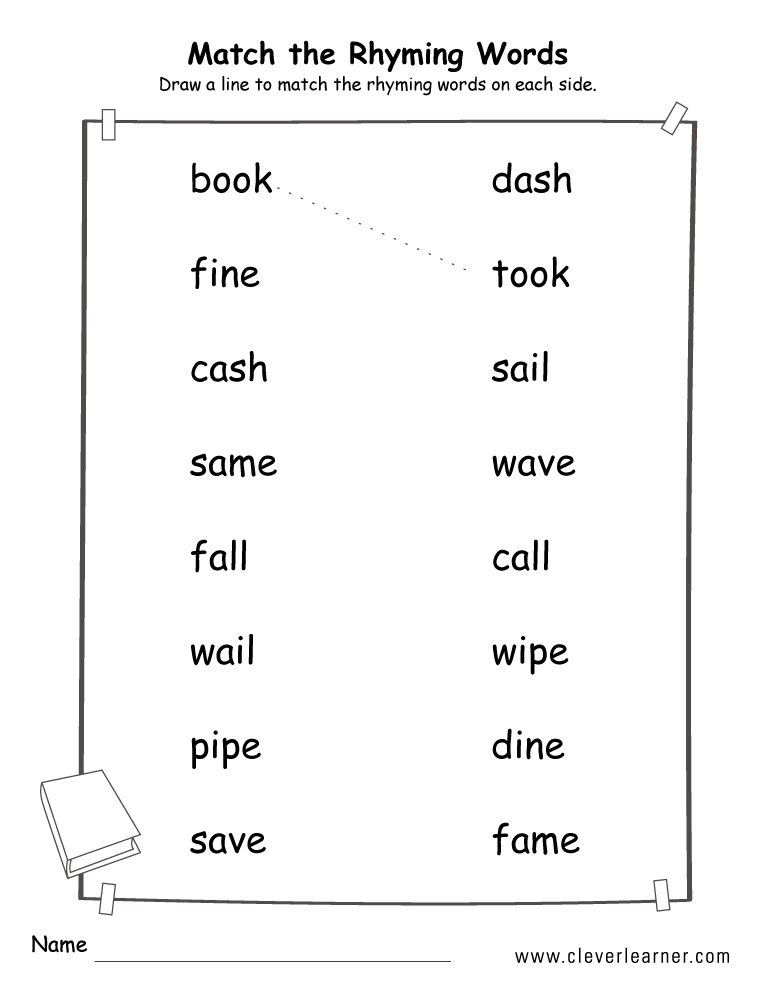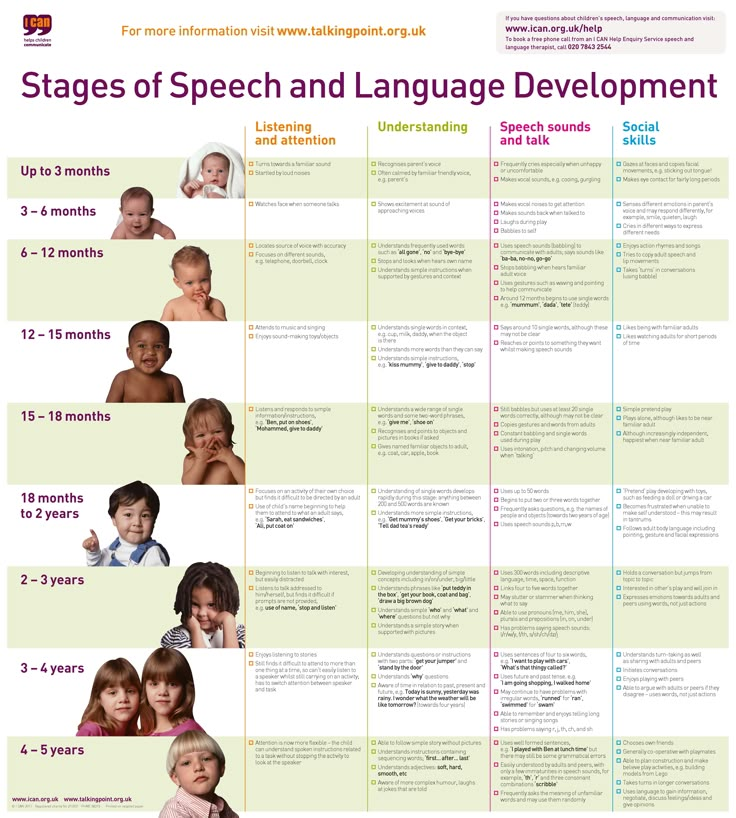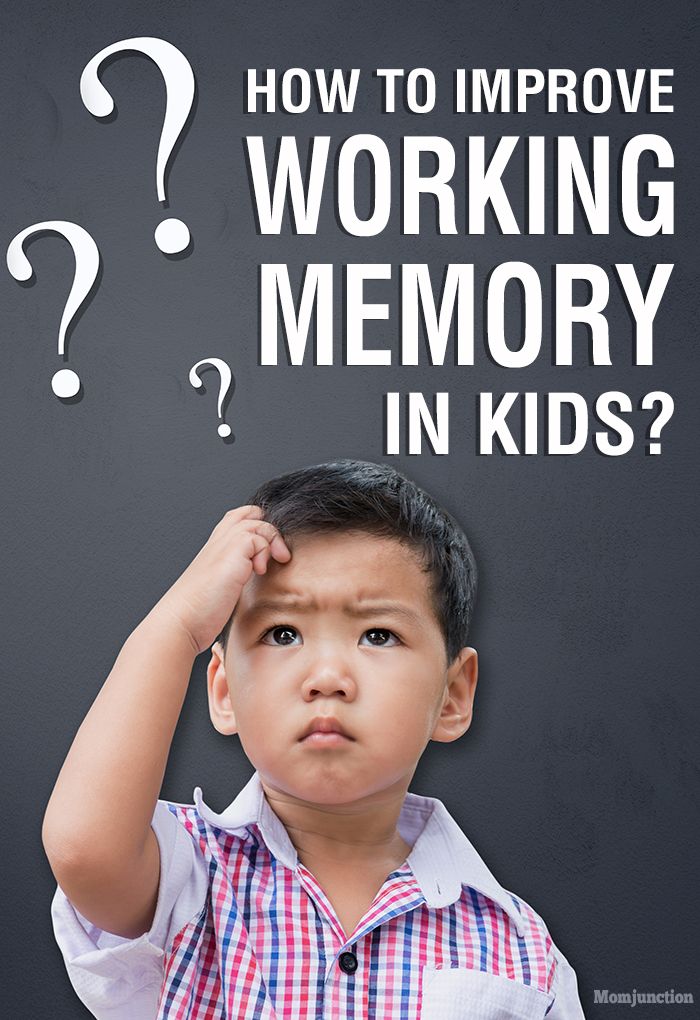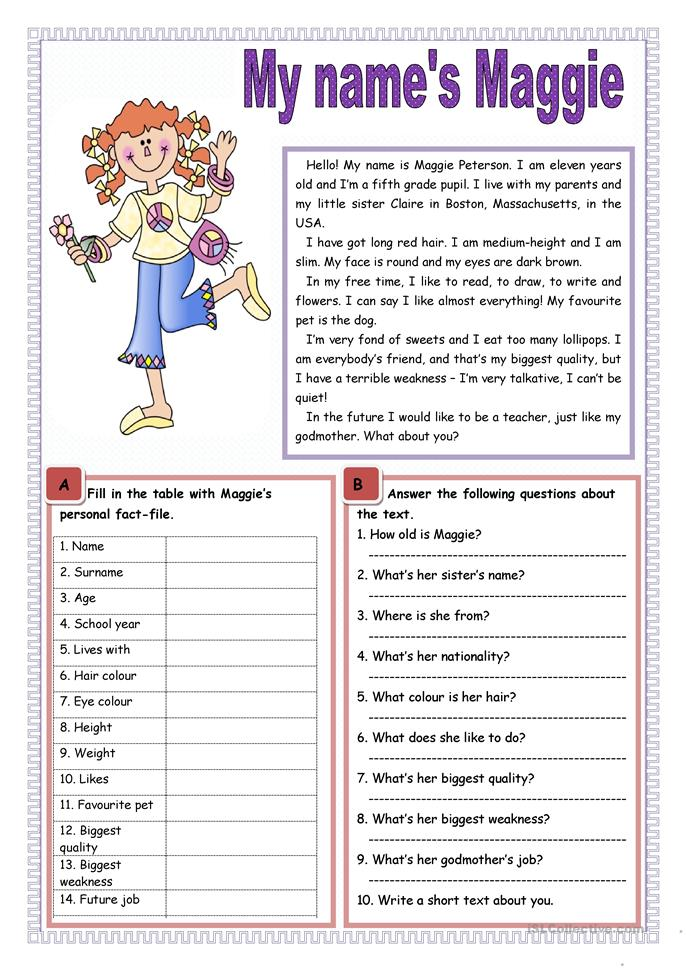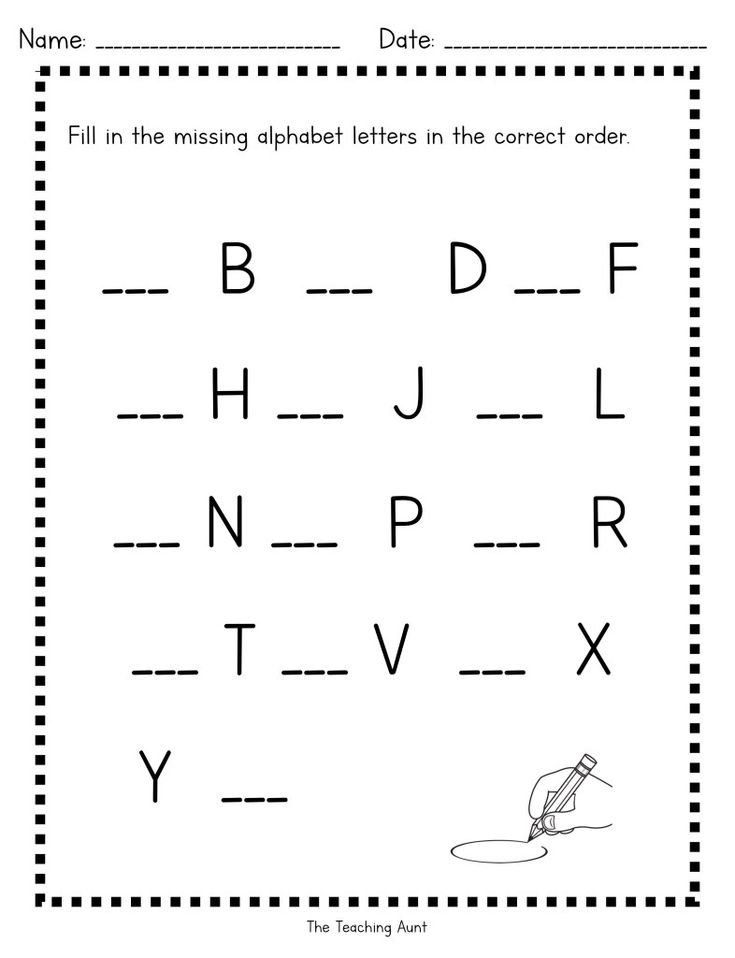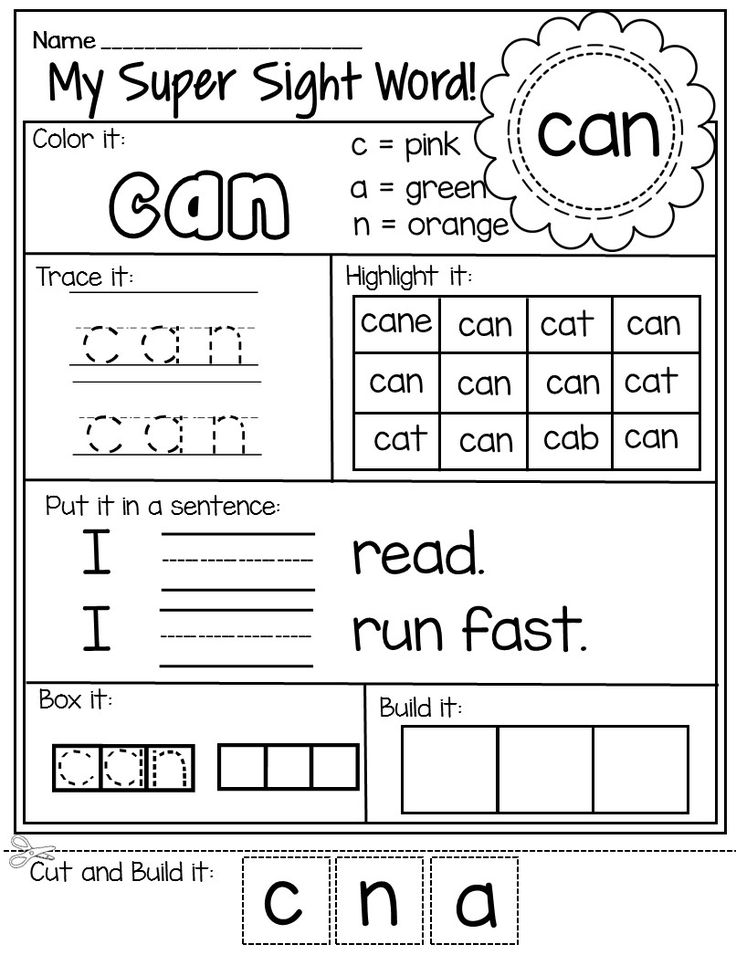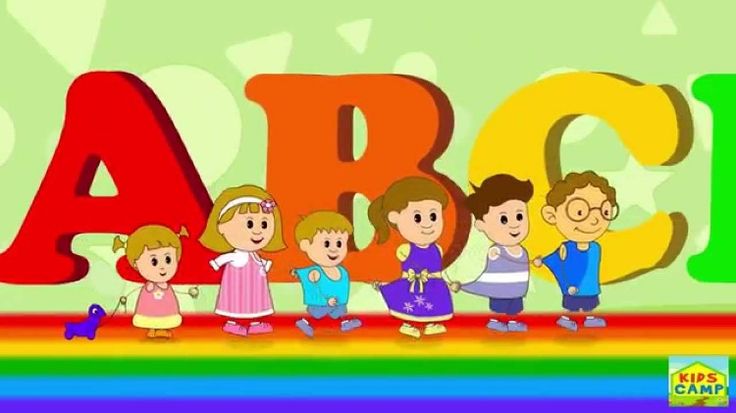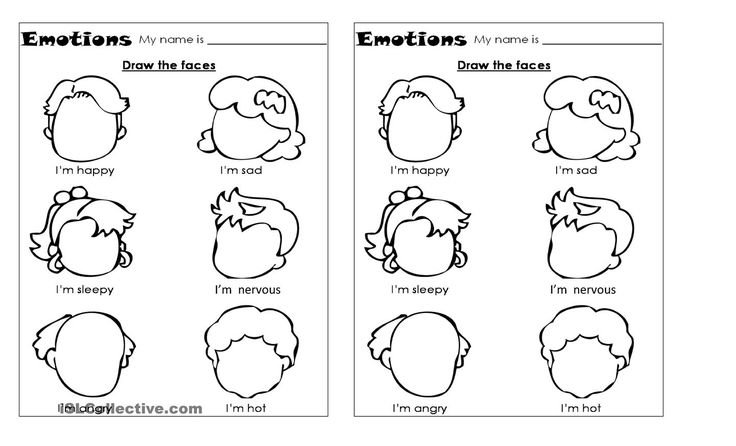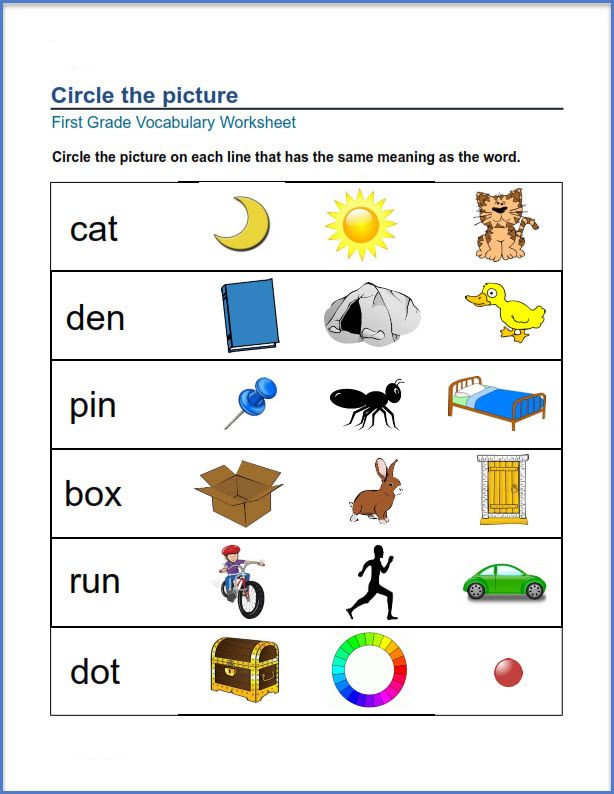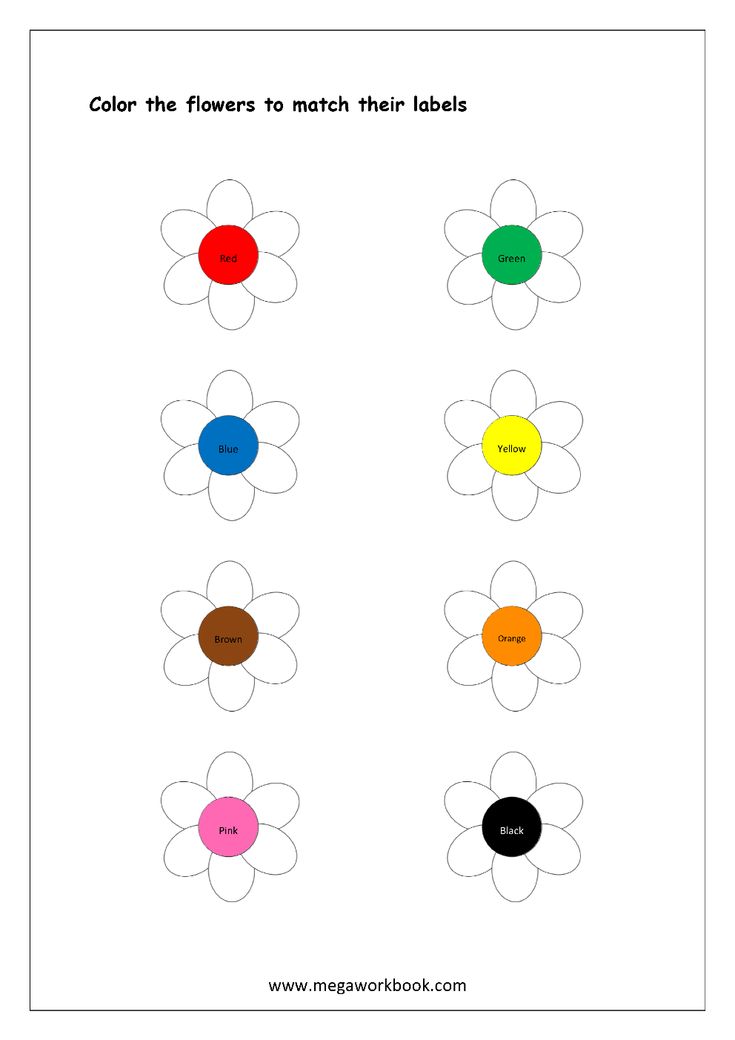What are the rhyming words
All About Rhyming Words For Kids, Plus Tips For Rhyming Practice
If you’re interested in some quick and fun ways to teach rhyming words for kids, you’re in the right place. And if you’re not sure how powerful rhyming can be, just think about the impact of Dr. Seuss’s books.
Why does Dr. Seuss continue to dominate children’s literature almost 30 years after his death? There are many reasons why Dr. Seuss’s books stand out from his peers’.
Besides the fact that they are incredibly fun to read, have great rhythm, and teach us all a thing or two about some of life’s lessons, his books are also easy to remember thanks to his use of rhyming.
Although rhymes seem like fun and games, they actually play an important role in language development.
In this article, we’ll explore everything you need to know about how to help your child develop this essential language skill.
Let’s start by defining what rhyming words are.
What Are Rhyming Words?
Rhyming words are words with the same ending sound. For example, “at” and “bat” are rhyming words. But so are “through” and “blue,” even though they end with different spelling patterns.
When working with rhyming words, it’s the sounds that count, not the letters. Take “approve” and “above,” for example. Both end in the letters /o/, /v/, and /e/. However, those three letters aren’t pronounced the same way in both words, so the words don’t rhyme.
Why Does Your Child Need To Learn How To Rhyme?
Before we explore the different ways to teach rhyming words for kids, it’s important to know why you may want to put in all this effort. Why should your child bother learning this skill?
Rhyming benefits children in plenty of ways. Let’s take a look at some right now.
1) Better Information Retention
One of the benefits of rhymes is that they help children (and adults) retain information more quickly and easily.
Children enjoy the feeling of reading deeply familiar stories, and doing so can even allow young readers to memorize parts of a book (or a whole book!).
Since these books are full of rhyming words, they’re easier to remember. That’s because rhymes stick in your child’s brain more quickly than other types of spoken language.
As your child hears the words, their mind breaks them down into sounds and makes connections between them. This connection between the words makes them easier to recall in the future.
Because of the impact of rhyme, many adults can still recite poems or songs they learned way back in elementary school.
2) Reading And Writing Benefits
If your child learns how to spell the word “fun,” it’s much easier for them to spell “run” correctly. Rhyming helps them pick up on patterns and word families, which can benefit them as they learn to read and write.
Finding patterns in words can unlock the world of reading for your child. They’ll discover success reading children’s books written in rhyme, which can be a huge confidence booster!
And, as they continue reading, they’ll be able to take what they’ve learned and apply it to non-rhyming words.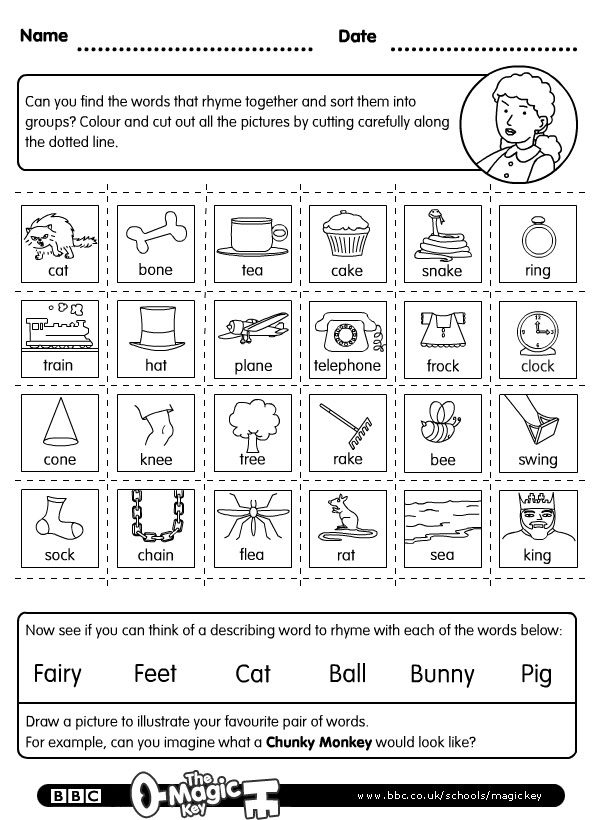
3) Phonological Awareness Development
Phonological awareness helps children identify and isolate sounds in words.
For instance, a child with phonological awareness will understand that the “all” sound in “ball” is the same “all” sound in mall, tall, hall, wall, etc.
Rhyming is one of the activities that can help develop this skill.
4) Listening Skills
Kids hear rhymes before they can read them. So, when you play with rhymes together, you help your child learn to listen to the different sounds in a word.
Listening is an essential skill that kids need to practice. As you work with your child on rhyming, they’ll be learning to use their ears to collect all of the information they need.
5) A Fun Way To Play With Language
Learning shouldn’t be boring, especially if you want to capture and hold your child’s attention. So, how do you bring some fun into it?
Rhyming words for kids can be an exciting way to do just that! When rhyming, your child is likely to engage more and, in the process, continue wanting to learn about language.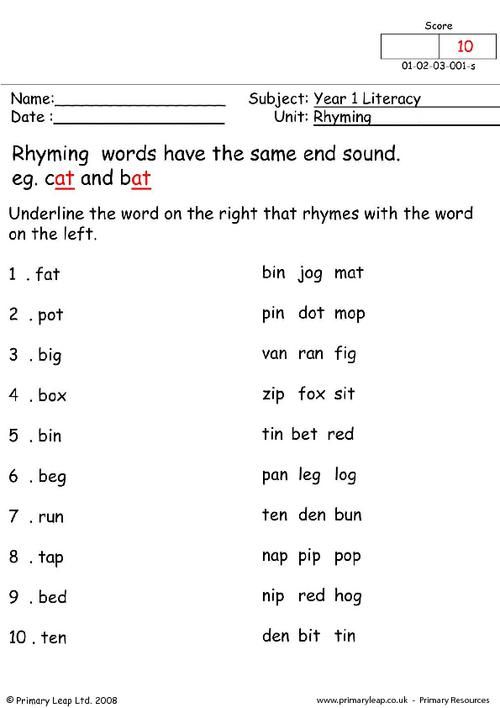
6) Cultural Literacy
Classic nursery rhymes and classic rhyming songs are a part of our culture.
The more your child is exposed to them, the more comfortable they’ll be when they come across other literature in the future with references to familiar rhymes like “Hickory Dickory Dock” or “The Itsy Bitsy Spider.”
The Three Stages Of Rhyming
Like most language development skills, rhyming takes time to develop. While you’re on this journey, your child will go through the following stages.
1) Hearing Rhymes
Naturally, the first stage of rhyming is repeatedly hearing rhymes. Your child can’t learn this skill if they aren’t exposed to rhymes.
This exposure can be through songs, nursery rhymes, and children’s books. It’s important to point out any rhyming words to your child as you come across them at this stage.
For very young children, chanting rhyming words while clapping or swinging their arms or bouncing rhythmically (blue/shoe…blue/shoe…blue/shoe) can activate rhyming and be fun to do.
2) Recognizing Rhymes
The more your child is exposed to rhyming words for kids through the songs or the books you read to them, the easier it will be for them to begin recognizing rhymes.
When your child starts pointing out which words rhyme in a song or book, they have reached the stage of rhyme recognition. During this phase, continue singing songs, sharing nursery rhymes, and reading rhyming books.
Once your child indicates that they’ve found a rhyming word, stop reading and let them show you. If they’re right, encourage them by saying, “Yes, those words end in the same sound; they rhyme.” Praise them for listening carefully and finding words that end in the same sound.
If your child makes a mistake, that’s OK! Gently correct them by saying, “I’ll repeat those two words. Listen carefully.” Then, say the two words aloud clearly. Finally, explain why the words don’t rhyme.
3) Creating Rhymes
So, you’ve been singing and reading to your child.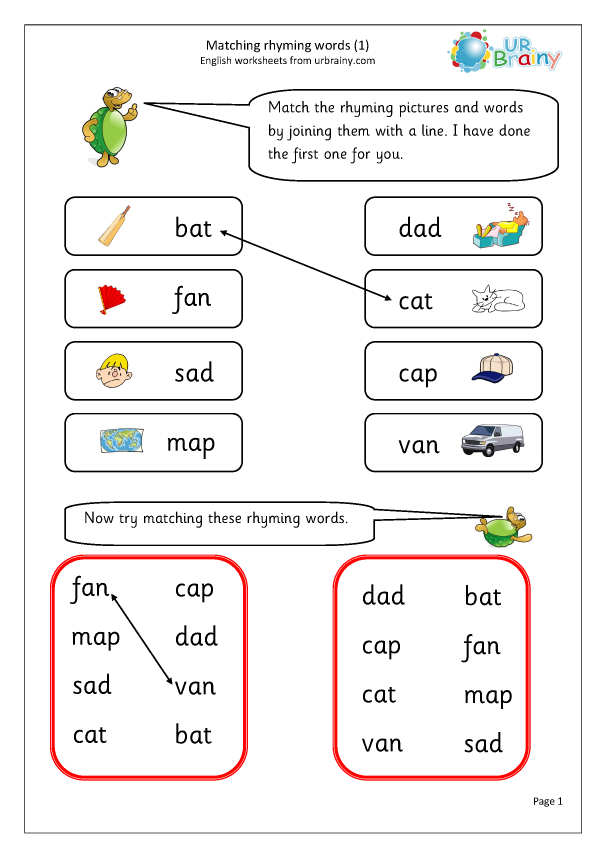 You’ve helped expose them to different rhymes, and they have also started to recognize them.
You’ve helped expose them to different rhymes, and they have also started to recognize them.
The next stage is your child creating their own rhymes!
Children love making up nonsense rhyming words (like pickle/smickle), and you might get to see your child’s creativity as they try to use their knowledge and understanding of rhymes to produce their own.
Don’t be surprised if they ask you questions like, “Do you know what rhymes with talk? Walk!” During this phase, your child might also show interest in writing their own books with rhyming words on the pages. Encourage them to let the creative juices flow!
The more your child practices, the better they’ll become at making their own rhymes using rhyming words.
Why Might A Child Have Trouble With Rhyming?
Some kids pick up rhyming quickly and easily. Others require a lot more repetition before they can recognize or create rhymes.
If your child is having some trouble, here are four common culprits.
1) They Haven’t Yet Developed Phonological Awareness
Phonological awareness is an umbrella term that includes the development of segmentation, rhyming, and blending syllables.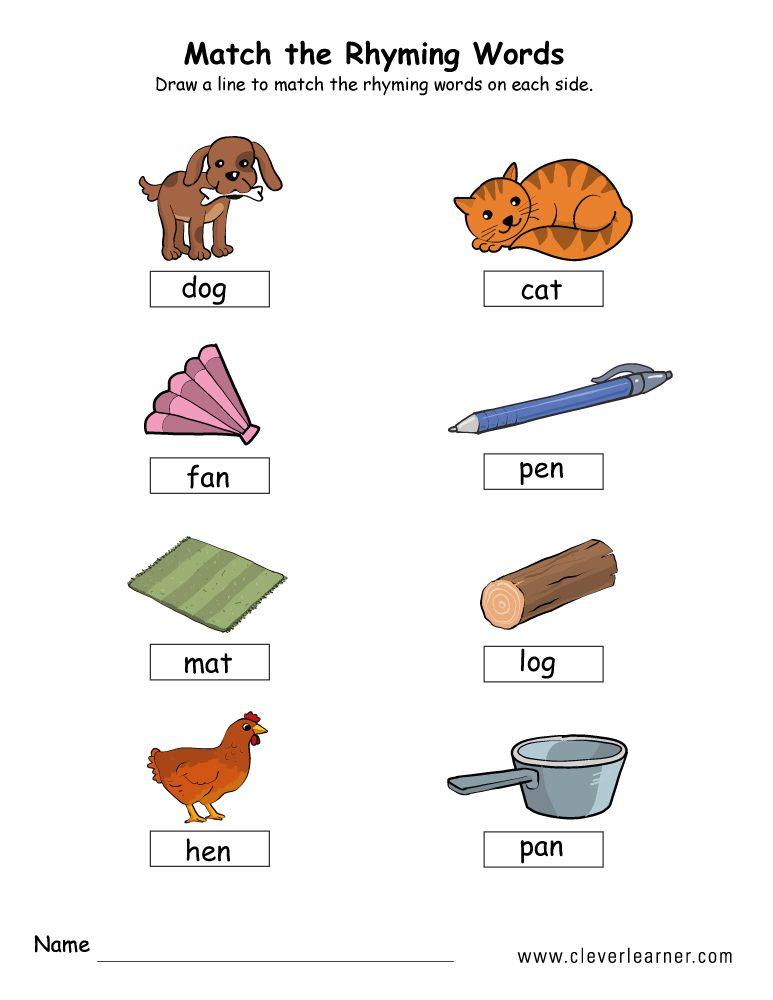
As we mentioned, some kids pick this important skill up easily, while others may need a little more practice to get the hang of it.
If you suspect that your child isn’t ready to rhyme, that’s OK! Slow down a bit, and read plenty of rhyming books together. Talk about the words and point out the sounds the letters make in them.
Using the HOMER Explore Letters Kit is another great way to practice. Build a word with the magnetic letters. Then, create another word that rhymes by swapping out the first letter. Encourage your child to make another word that rhymes with the first two.
As you help them gain confidence with the alphabet and the sounds letters make, you’ll equip your child with the skills they need to rhyme.
2) They Might Be Confused About Which Words Need To Rhyme
In some books, the words that rhyme are at the end of consecutive lines. But sometimes, alternating lines rhyme. And other times, the rhymes are at the beginning of a sentence, not the end.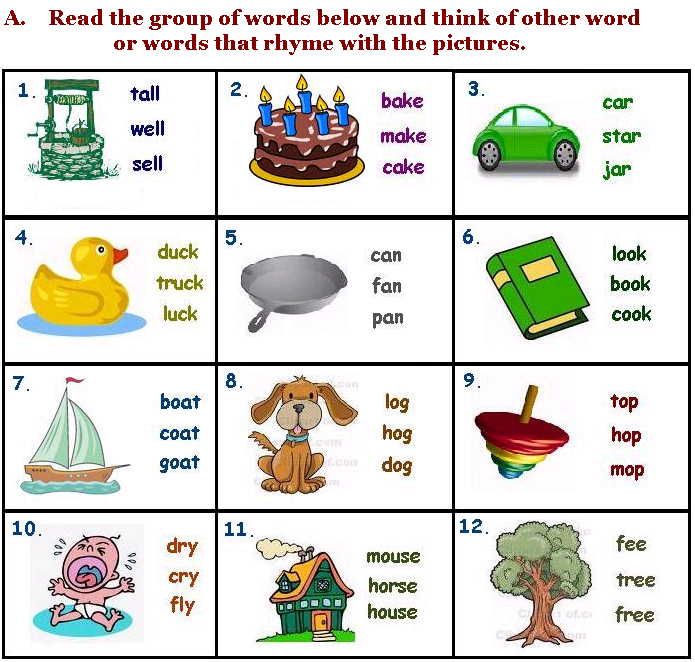
All of this inconsistency in rhyming patterns can be confusing to a child who is trying to learn this skill.
To practice, work together to find rhyming words and see where they are. This can teach your child to look for patterns in words, which can help them become a better reader.
3) They Might Have Trouble Focusing
For any child to learn rhyming words, they need to be able to focus on the activity so they can pick up on the different sounds and rhythmic patterns.
If your child quickly loses interest in the activity you’re doing together, they might not hear you when you highlight that “look” rhymes with “book.”
To help, make sure you’re working on age-appropriate skills. If your child is a young toddler, they might not be developmentally ready for rhyming. Wait a little longer, and then try again.
If your child is ready to rhyme and just loses focus, try a different type of activity. For example, play a rhyming game or read a book they enjoy.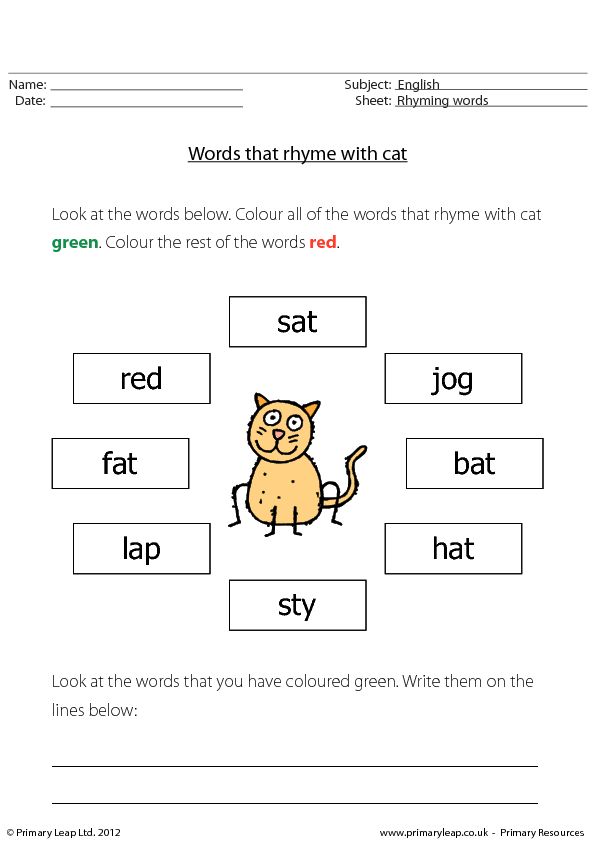 Again, doing something that interests them can help hold their attention.
Again, doing something that interests them can help hold their attention.
4) They Confuse Which Part Of The Words Are Supposed To Rhyme
Some kids may get mixed up because they think words that start with the same letter rhyme.
If your child says that moon and milk rhyme, they’re on the right path. They understand that part of the two words needs to match; they’re just confused about which part.
To help your child overcome this, start emphasizing the ends of the words when you point out rhyming words for kids. Instead of saying, “Pig and wig rhyme,” say, “p/IG and w/IG rhyme.”
This pulls the focus to the end of the word. It may take time, but keep practicing, and you’ll help your child master this skill!
Helping Your Child Develop Their Rhyming Skills
The above are some of the common reasons why your child may not have mastered rhyming just yet. But now that you understand the importance of rhyming, how can you help them acquire this skill?
These eight fun rhyming activities can help reinforce the concept for your child.
1) Recite Nursery Rhymes
Nursery rhymes are not just for babies! They can actually play an essential role in young children’s language development. That’s because they help kids hear the different syllables and sounds in language.
A fun activity to enhance learning during nursery rhymes is to play fill in the blank. Simply recite a nursery rhyme out loud and leave your child to fill in the last word.
For example, “Humpty Dumpty sat on a wall. Humpty Dumpty had a great…”
The proper ending is the word “fall.” If your child doesn’t get it at first, that’s OK. Repeat the sentence, adding the word they suggested to the end. Then, ask your child, “Does that sound right?”
If not, say it the correct way and point out that “wall” and “fall” rhyme.
It can also be fun for the adult to say what comes next and supply a completely wrong word. Your child will get a kick out of the silly answers you come up with!
2) Sing Songs That Rhyme
Many popular and age-appropriate songs also rhyme.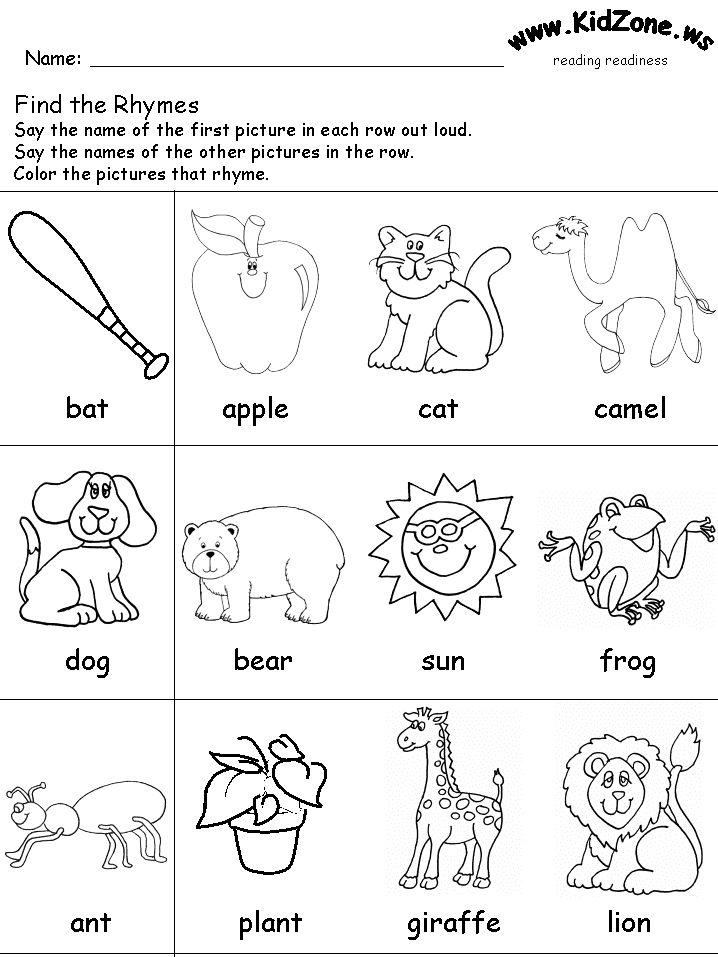 So, why not point out the rhymes when watching TV or listening to music?
So, why not point out the rhymes when watching TV or listening to music?
As we’ve mentioned, the more children are exposed to rhymes in different forms, the easier it will be for them to fully grasp the concept of rhyming. Noticing rhymes in your day-to-day activities is a great way to accomplish that!
There are so many fun, silly songs that rhyme. Here are a few of our favorites:
- Down By the Bay
- I Had a Little Turtle
- 5 Little Monkeys Swinging in a Tree
- On Top of Spaghetti
- If All of the Raindrops
- Do Your Ears Hang Low?
Pick one song at a time to work on, and sing it often — during car rides, while setting the table, or in the bath. This way, your child becomes familiar with the words and the tune.
Once they know the lyrics, pause where a rhyming word goes and ask them to say what comes next. Let them say it, and then keep singing.
When you have one song down, pick another to learn. Each time you sing a rhyming song, you’re helping your child master the skill of rhyming.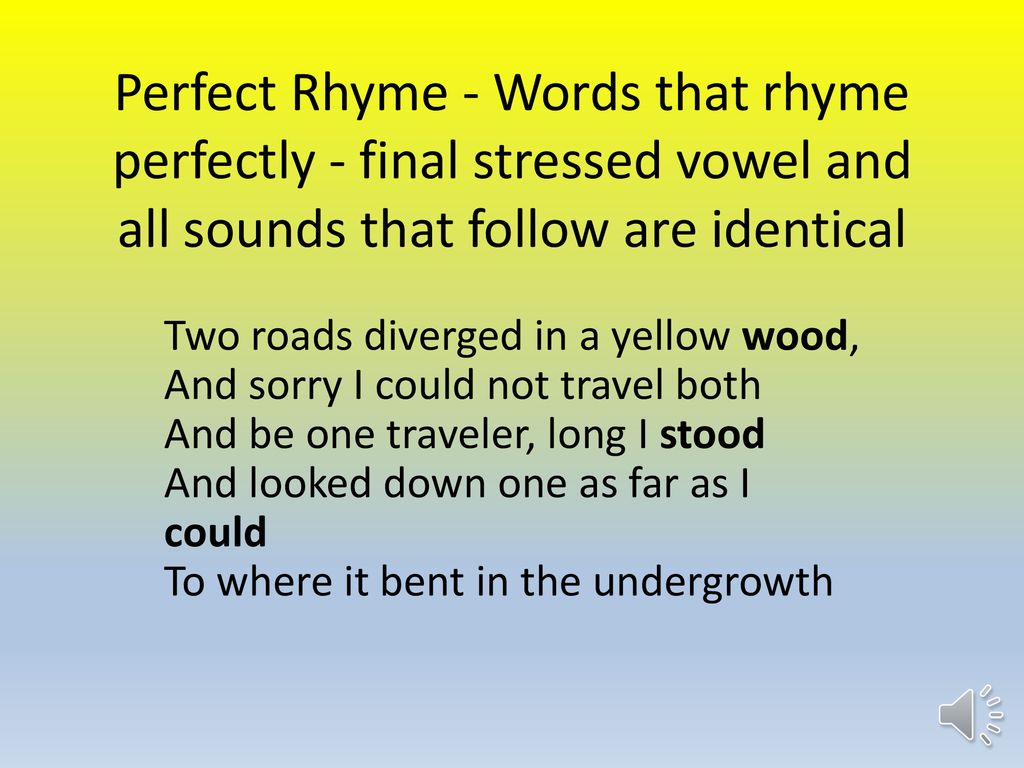
3) Read Poetry
Poems are a wonderful way to engage in rhyming words for kids. This is also an opportunity to expose your child to different and diverse literature.
For instance, Lucille Clifton, Nikki Grimes, and Nikki Giovanni are some poets who’ve written incredible poetry for kids.
There are also many children’s books written partially or totally in rhyme, such as the “Llama Llama” books. The idea here is to continue exposing your child to different forms of rhymes.
For a bit of fun, consider hosting a family poetry night. Let everyone pick a favorite poem to share. Then, spend a few weeks memorizing the words. On poetry night, take turns reciting your poems and listening to each other.
Alternatively, you can use this night to read several poems from different poets. That way, your child can hear a variety of poems and listen to the different ways each poet uses the English language.
You may even want to incorporate poetry into your bedtime reading routine, too!
4) Play Rhyming Word Games
There are plenty of ways to help your child learn to rhyme while still having fun!
For instance, you can use the letters in the HOMER Explore Letters Kit to spell out a word ending in -at.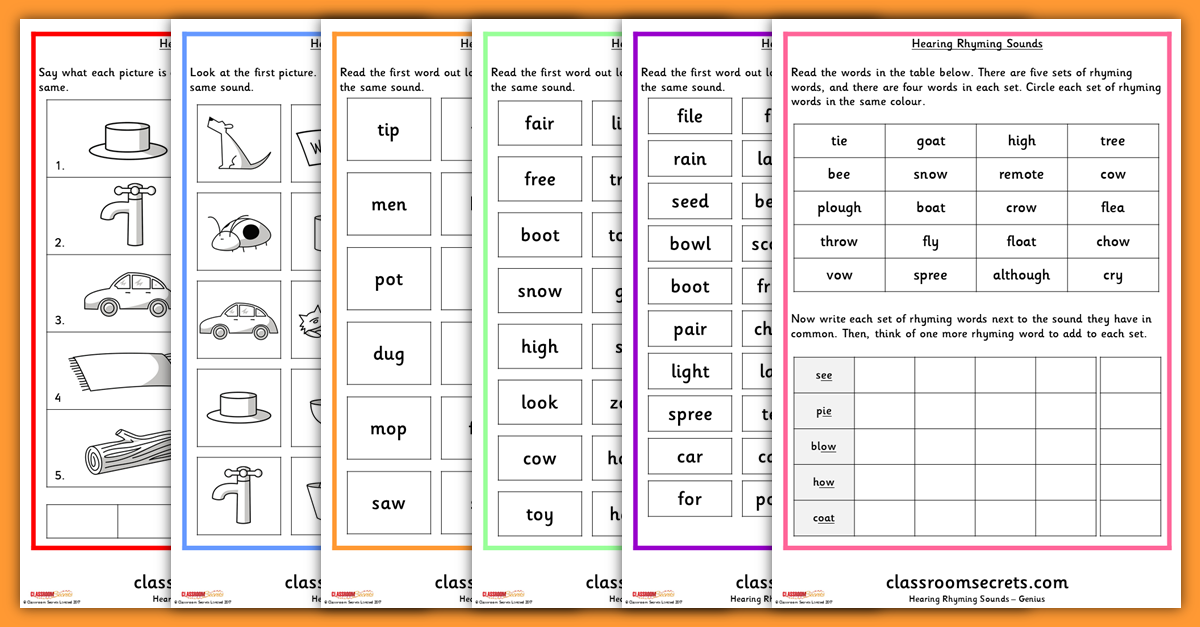 Put the letters “at” on the board.
Put the letters “at” on the board.
Your child now needs to place letters at the beginning to create words that rhyme (cat, hat, bat, mat, etc.). See how many they can come up with for a prize!
You can also play rhyming games when you’re out and about. Pick a word and say it aloud. Ask your child if they can think of a word that rhymes with it. Then, add your own word that rhymes.
Continue playing, alternating who speaks, until no one can think of another rhyming word. Have your child pick a new word and begin again!
5) Rhyme With Pictures
Images can help summarize chunks of information into smaller and easier to process content. You can take advantage of this by using picture books.
Pictures of a hat, cat, or mat may not expose learners to how these words are written, but it allows them to start learning the basic concept that rhyming words sound similar.
You can also create custom picture cards with a pack of index cards. Draw a simple, easily recognizable object on each card.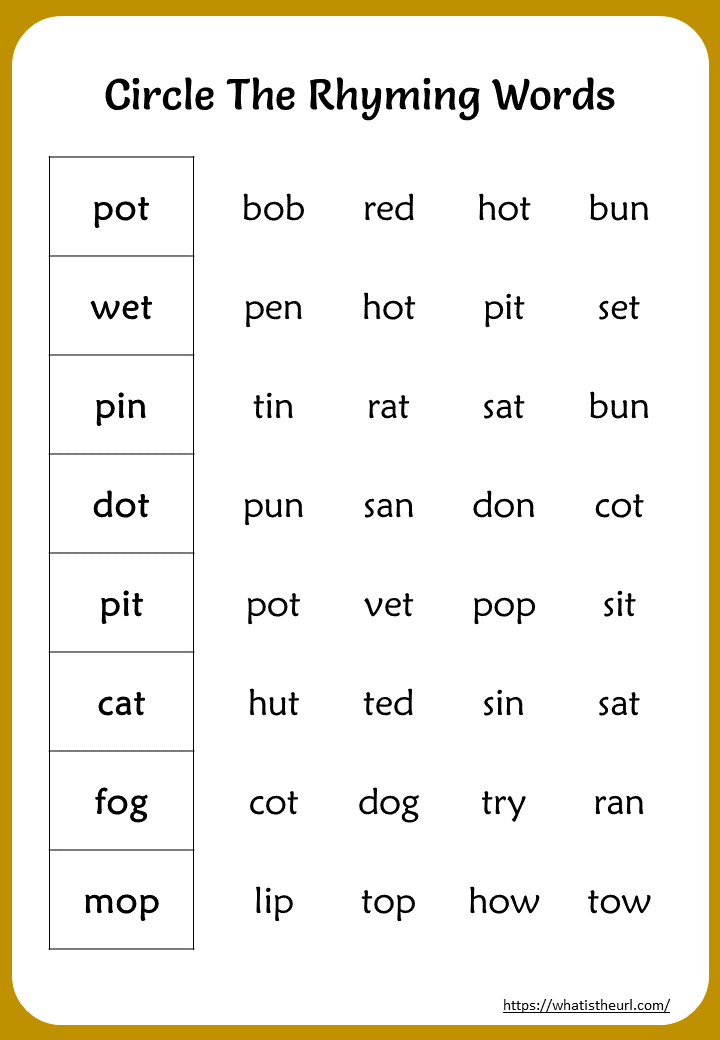 Here are some words to use for your pictures:
Here are some words to use for your pictures:
- Moon
- Spoon
- Bear
- Chair
- Cat
- Hat
- Ring
- Swing
- Dog
- Log
Once you have your cards made, you can use them in various ways. For example, you might spread them out upside down and play Memory with your child. Take turns flipping two cards at a time. Say the two words aloud. If they rhyme, keep them. If not, flip them back over.
You can also hide one word from each matching pair around the room. Hand your child one of the other ones and say, “Can you find a card with a picture of something that rhymes with ‘ring?’” Then let them search around the room to find the right card.
6) Act It Out
Instead of just reading or singing a rhyme, acting it out can help a child not only remember the rhymes but also have fun in the process!
Whether you’re acting it out, singing, reading, or using picture books, the more you expose your child to rhymes, the quicker they’ll grasp the concept.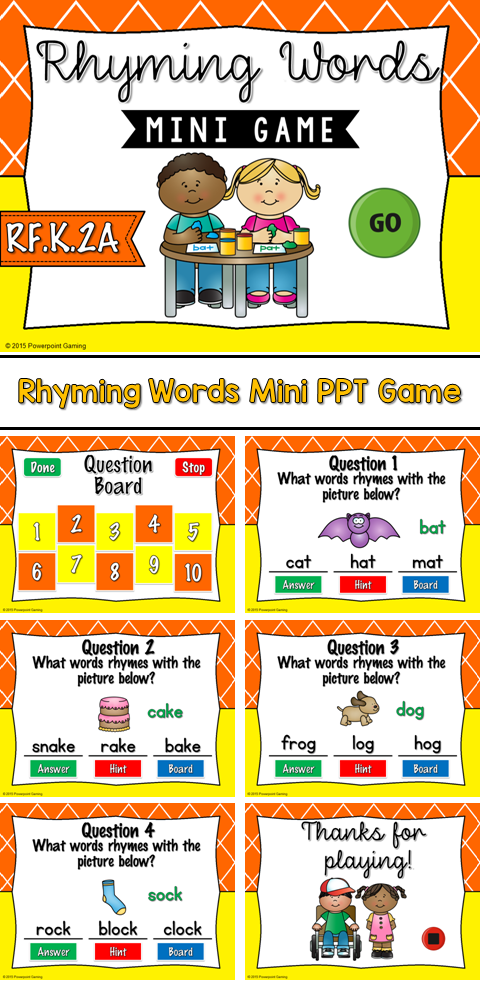
7) Rhyme Nonsense Words
Nonsense words are words that aren’t actual words. For example, the word “thirp” is a nonsense word.
Teachers often use nonsense words to help students learn specific skills, including the developing the power of the hour: rhyming.
Say a nonsense word and ask your child to think of a real word that rhymes. Here are a few words you can try:
- Vlat
- Trun
- Splew
- Ploon
To make it even more fun, pretend to be a robot or an alien. Then, ask your child to help you translate your language into English by coming up with a rhyming word.
8) Make A Rhyming Basket
Look around your house for items that rhyme, and put them in a large basket or box for your child to use. They can sort objects, create a story with the rhyming words, draw them, or use their imagination to interact with the rhyming words in a new way.
Here are a few ideas of common objects that rhyme:
- Sock, block
- Pan, can
- Jar, car (a toy one, of course!)
Have your child brainstorm more items that rhyme to put in the basket.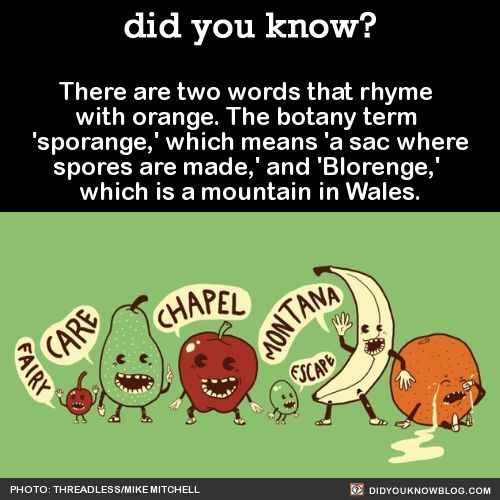 Since these things will get played with, make sure the items are kid-friendly and safe.
Since these things will get played with, make sure the items are kid-friendly and safe.
Books With Rhyming Words For Kids
We’ve already mentioned a few authors who have created some incredible children’s books that rhyme. Here are a few other popular options that your little one can also enjoy:
- There’s A Wocket In My Pocket!
- Here’s A Little Poem
- Llama Llama Red Pajama
- Madeline
- Rhyme Crime
- Baby Boo, I Love You
- I See The Moon: Rhymes For Bedtime
- Giggly Wiggly: Playtime Rhymes
It’s Time To Rhyme With Rhyming Words For Kids!
Rhyming words for kids are a fun and creative way to lay a solid foundation for literacy.
So, remember to continue reading children’s literature and singing all the fun nursery rhymes you can think of. As your child gets more comfortable with the rules, don’t be surprised when they start creating their own unique rhymes!
To help your young learner develop other important skills, you can also check out Homer’s Learn & Grow App, which helps kids develop their reading, creativity, thinking skills, and so much more.
Author
Words That Rhyme | A Huge List of 2500+ Incredible Rhyming Words
Sharing is caring!
10373 shares
Are you searching for a list of words that rhyme in English? Rhyming can be a fun and effective way to add musicality and interest to your writing. Whether you’re composing a poem, writing a song, or just looking for words that sound similar, this huge list of more than 1000 English words that rhyme is sure to come in handy. From common rhymes like ‘cat’ and ‘hat’ to more obscure pairs like ‘flour’ and ‘hour,’ you’ll find a wide range of options to choose from.”
Table of Contents
Rhyming Words
What are Rhyming Words?
Rhyming words are words that have the same ending sound. For example, the words ‘cat’, ‘hat’, and ‘rat’ all rhyme because they end with the same sound (-at). Rhyming words are often used in poetry and songwriting to create a musical or rhythmic effect. They can also be used in children’s literature and in other types of writing to add a playful or humorous element.
They can also be used in children’s literature and in other types of writing to add a playful or humorous element.
Things to remember about the difference between rhyming words and homophones:
Rhyming words have different beginning sounds, but have the same vowel and ending sounds, for example: cat/sat/pat/hat, spin/fin/chin/pin, etc. Homophones are words that sound alike but have different meanings and spellings, for example, pain/pane, hi/high/, you/yew/ewe, there/their/they’re, to/too/two.
The Benefit of Using Rhyming Words in Writing
- Rhyming words can create a musical or rhythmic effect in a text, which can make it more enjoyable to read or listen to.
- Rhyming words can add a playful or humorous element to a text, which can be especially effective in children’s literature.
- Using rhyme can help with the memorization and recall of a text.
- Rhyme can also be used as a literary device to create a specific mood or atmosphere in a text.
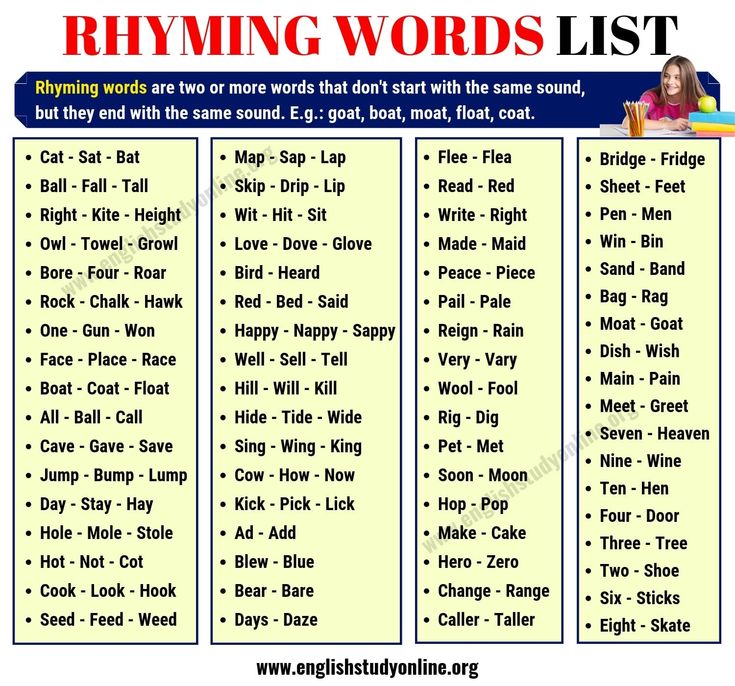
Rhyming Words | Video
List of Common Words that Rhyme in English
This is a comprehensive list of words that rhyme in English for your reference. Take a look!
- Ace – Base – Case – Chase – Grace – Lace – Mace – Race – Space – Trace – Face – Place – Brace – Disgrace
- Ad – Add – Cad – Bad – Dad – Glad – Had – Mad – Pad – Rad – Sad
- Age – Cage – Page – Sage – Wage – Engage – Stage
- Aid – Blade – Maid – Parade – Shade – Trade – Upgrade – Crusade – Brigade
- Aim – Blame – Claim – Frame – Game – Lame – Name – Same – Shame – Tame
- Air – Bare – Care – Chair – Compare – Declare – Despair – Fair – Flair – Hair – Pair – Repair – Share – Stair – Swear – Wear
- All – Ball – Call – Ball – Fall – Tall
- Alliance – Compliance – Defiance – Reliance – Science – Violence
- Amaze – Craze – Daze – Gaze – Haze – Maze – Phase – Raise
- Anna – Hannah
- Apple – Chapel – Dapple – Grapple – Snapple – Scrapple – Snapple
- Asia – Malaysia
- Ask – Flask – Mask – Task – Cask – Bask
- Assist – Consist – Exist – Insist – Persist – Resist – Twist
- At – Bat – Cat – Fat – Hat – Mat – Rat – Sat – Chat – Flat – That
- Away – Okay – Convey – Bay – Day – Gray – May – Pay – Ray – Sleigh – Spray – Stay – Way
- Awe – Claw – Draw – Flaw – Jaw – Law – Paw – Saw
- Awful – Beautiful – Dutiful – Faithful – Grateful – Helpful – Pitiful – Powerful – Regretful – Respectful – Thoughtful – Wistful – Youthful
- Back – Lack – Stack – Crack – Black – Smack
- Bad – Glad – Mad – Sad – Plaid – Pad – Brad – Clad – Grad – Had – Shad
- Bake – Cake – Flake – Lake – Make – Rake – Shake – Snake – Take – Wake
- Ballad – Salad – Palisade – Parade – Crusade – Charade – Brigade
- Balm – Calm – Palm – Qualm – Alm – Bam – Wham
- Bamboo Shoot – Grapefruit
- Ban – Can – Clan – Fan – Man – Pan – Plan – Scan – Span – Tan – Band – Stand – Grand
- Bandit – Candid – Remanded – Standout – Candid
- Bard – Card – Guard – Hard – Lard – Yard – Award – Discord
- Barter – Carter – Charter – Garter – Martyr – Partner – Starter – Tartar
- Bat – Chat – Fat – Flat – Hat – Mat – Pat – Rat – Sat – Splatter – That
- Bee – Fee – Free – Glee – Key – Knee – Lee – Pee – See – Three – Tree – Wee
- Beef – Chief – Fief – Grief – Leaf – Relief – Thief
- Been – Gin – Grin – Inn – Kin – Pin – Sin – Skin – Spin – Tin – Twin – Win
- Beer – Clear – Fear – Near – Peer – Rear – Seer – Tear – Year – Premier – Bear – Bare – Rare
- Bell – Cell – Dwell – Fell – Gel – Hell – Sell – Smell – Spell – Swell – Tell – Well
- Belt – Celt – Felt – Melt – Smelt – Spelt
- Bend – End – Friend – Mend – Send – Spend – Trend – Blend – Extend – Pretend – Amend
- Bide – Bride – Chide – Glide – Guide – Hide – Ride – Side – Slide – Tide – Inside – Provide
- Bird – Heard – Shepherd
- Bite – Fight – Flight – Kite – Knight – Light – Might – Night – Right – Sight – Tight – Write – Bright
- Blaze – Craze – Daze – Gaze – Haze – Laze – Maze – Phase – Raise
- Blew – Blue – Bloo
- Bloom – Boom – Brood – Doom – Gloom – Loom – Room – Womb – Tomb – Zoom
- Blue – Clue – Cue – Drew – Flue – Glue
- Blurt – Splurt – Assert – Concert – Convert – Desert – Divert – Exert – Flirt – Insert – Overt – Pervert – Revert
- Boar – Four – Roar – Bore
- Boat – Coat – Float
- Boo Hoo – Choo Choo
- Boston – Austin
- Brain – Chain – Plain
- Bread – Spread
- Break – Brake – Crake
- Breast – Chest
- Bridge – Fridge – Ridge
- Buzzard – Lizard
- Caller – Taller – Crawler
- Cat – Sat – Bat – Mat – Pat
- Cave – Gave – Save – Have
- Change – Range – Exchange
- Chess – Bench Press
- Chickpeas – Cheese – Sneeze
- Chloe – Joey
- Chord – Record
- Clarinet – Duet – Minuet – Quartet
- Clash – Crash – Smash
- Cook – Look – Hook – Took
- Cow – How – Wow – Now
- Crack – Track – Attack
- Cuba – Aruba
- Curling – Baton Twirling
- Dare – Bare – Care
- Day – Stay – Hay
- Daytona – Pomona
- Defend – Trend – Bend
- Ding Dong – Ping Pong
- Dish – Wish – Fish
- Dove – Love – Glove
- Drain – Vain – Attain
- Drone – Clone – Bone
- Drum – Strum
- Duck – Buck
- Eagle – Beagle
- Egg Yoke – Artichoke
- Eight – Skate – Slate – Hate
- Ella – Bella – Della
- Email – Detail – Trail
- Estonia – Macedonia
- Eyelid – Bicuspid
- Fake – Take – Bake
- Fine – Dine – Time
- Flee – Flea – Tea
- Four – Door – Core
- Four – Door – Snore
- Gary – Harry – Larry
- Gees – Please
- Girl – Curl – Pearl
- Goose – Moose – Snooze
- Gorilla – Chinchilla
- Gracie – Tracey
- Grapes – Crepes
- Guacamole – Cannelloni
- Guitar – Sitar
- Had – Bad – Mad
- Hale – Kale – Vale
- Ham – Lamb
- Hamster – Warbler
- Happy – Nappy – Sappy – Puppy
- Hare – Bare – Fare – Rare
- Harp – Sharp
- Hero – Zero – Spiro
- Hide – Tide – Wide – Ride
- Hiking – Biking
- Hill – Will – Kill – Bill
- Hole – Mole – Stole
- Hop – Pop – Rope
- Hope – Pope
- Hot – Not – Cot – Pot
- Jane – Zane
- Jay – Ray – Hay – Bay – Stay
- Jump – Bump – Lump – Stump
- Kangaroo – Caribou
- Kick – Pick – Lick
- Lab – Fab – Mab
- Liberia – Siberia
- Lip – Hip – Sip – Tip – Nip
- Loin – Groin
- Love – Dove – Glove – Stove
- Lyre – Choir
- Made – Maid – Shade
- Main – Pain – Stain
- Make – Cake – Take
- Male – Whale – Tale – pale
- Map – Sap – Lap
- Mark – Clark – Stark
- May – Say – Obey
- Meet – Greet – Sheet
- Microphone – Baritone – Tone
- Million – Billion – Trillion
- Moat – Goat – Boat
- Mohair – Underwear
- Monkey – Donkey
- Moo – Boo
- Mousse – Juice
- Nail – Fail – Mail
- Nebraska – Alaska
- Nine – Wine – Shine
- Oink – Boink
- One – Gun – Won – Nun
- Owl – Foul – Towe l- Growl
- Pail – Pale – Snail – Rail
- Pair – Stair – Fair
- Panini – Linguini
- Part – Mart – Chart
- Pay – May – Lay
- Peace – Piece – Cheese
- Pen – Men – Ben
- Perry – Jerry
- Pet – Met – Get – Net
- Pies – Fries – Flies
- Pray – Play – Stay
- Puffin – Dolphin
- Race – Grace – Brace – Lace – Pace Space
- Racoon – Baboon
- Read – Red
- Read – Red – Bed – Said – Ted
- Red – Bed – Said
- Reign – Rain – Drain
- Rhyme – Chime
- Riding – Gliding
- Rig – Dig – Pig
- Right – Kite – Height
- Rock – Chalk – Hawk
- Romper – Jumper
- Sad – Dad – Pad
- Sand – Band – Brand
- Seed – Feed – Weed
- Seven – Heaven – Eleven
- Share – Flare – Spare
- Shark – Lark – Fork
- Sheet – Feet – Meet
- Sheet – Heat – Feet
- Shin – Chin – Win – Pin
- Sing – Wing – King – Sming
- Six – Sticks – Tricks
- Skip – Drip – Lip – Tip
- Slack – Snack – Pack
- Sloth – Moth
- Snail – Quail
- Sock – Smock
- Soon – Moon – Doom
- Soprano – Piano
- Spare – Scare – Stare
- Splash – Slash
- Steak – Milkshake
- Suits – Boots
- Tale – Bale – Whale
- Ten – Hen – Ben – Then
- Thigh – Eye
Full List of Rhyming Words
Words that Rhyme with Again
- Aim
- Bain
- Bane
- Blaine
- Blame
- Brain
- Cain
- Caine
- Came
- Cane
- Chain
- Crain
- Crane
- Dane
- Drain
- Duane
- Fame
- Fein
- Flame
- Frame
- Gain
- Grain
- Jain
- Kane
- Lain
- Name
- Main
- Maine
- Mane
- Pain
- Pane
- Plain
- Plane
- Rain
- Reign
- Slain
- Spain
- Stain
- Train
- Twain
Words that Rhyme with All
- Hall
- Tall
- Lol
- Wall
- Call
- Paul
- Ball
- Fall
- Y’all
- Crawl
- Mall
- Small
- Brawl
- Stall
- Saul
- Gall
- Sprawl
- Scrawl
- Raul
- Drawl
- Thrall
- Squall
- Shawl
- Nall
- Thall
Words that Rhyme with Alone
- Blown
- Lone
- Zone
- Throne
- Grown
- Don’t
- Known
- Tone
- Bone
- Stone
- Phone
- Shown
- Clone
- Own
- Mon
- Prone
- Drone
- Flown
- Cone
- Chrome
- Roam
- Slone
- Dome
- Home
- Sewn
- Hone
- Joan
- Trone
Words that Rhyme with Away
- A
- Bay
- Clay
- Cray
- Day
- Gay
- Grey
- Hey
- J
- K
- Lay
- May
- Pay
- Play
- Pray
- Ray
- Say
- Slay
- Spray
- Stay
- Stray
- Sway
- They
- Tray
- Way
- Yea
Words that Rhyme with Back
- Bag
- Black
- Brag
- Clack
- Crack
- Drag
- Fag
- Flag
- Hack
- Jack
- Knack
- Lack
- Mac
- Pack
- Plaque
- Quack
- Rack
- Sack
- Shaq
- Slack
- Smack
- Snack
- Stack
- Tag
- Tak
- Track
- Wack
- Whack
- Yak
Words that Rhyme with Blue
- Boo
- Brew
- Chew
- Clue
- Crew
- Do
- Drew
- Due
- Few
- Flew
- Glue
- Grew
- Jus
- New
- Ooh
- Poo
- Que
- Screw
- Shoe
- Soo
- Spew
- Through
- To
- View
- Who
- You
- Zoo
- True
Words that Rhyme with Cat
- Rat
- That
- At
- Flat
- Sat
- Hat
- Fat
- Chat
- Dat
- Bat
- Gat
- Tat
- Spat
- Pat
- Mat
- Lap
- Glad
- Snap
- Pad
- Strap
- Mad
- Dad
- Sad
- Slap
- Cap
- Add
- Map
- Tap
Words that Rhyme with Day
- Bay
- Bey
- Bray
- Brey
- Clay
- Dray
- Gay
- Hay
- Hey
- Lay
- Affray
- Airway
- Allay
- Archway
- Ashtray
- Astray
- Away
- Belay
- Betray
- Birthday
- …
Words that Rhyme with Do
- To
- Who
- Through
- New
- True
- Few
- Crew
- Blue
- Grew
- Que
- View
- Jus
- Screw
- Due
- Clue
- Boo
- Ooh
- Shoe
- Chew
- Flew
- Glue
- Soo
- Spew
- Zoo
- Drew
- Poo
- Brew
- Wu
- Fu
- Stew
- Ku
- Vu
- Mu
- Goo
Words that Rhyme with Dog
- Fog
- Talk
- Walk
- Log
- Chalk
- Blog
- Broad
- Drop
- Top
- Hawk
- Stalk
- Bog
- Cog
- Snog
- Kong
- Op
- Fraud
- Caught
- Lot
- Brought
- Fought
- Wat
- Thought
- Bought
- Taught
- Squawk
- Gawk
- Balk
- Kalk
- Falk
- Sawed
- Flawed
- Caused
- Called
- Ought
- Dong
- Mod
- Sought
- Thawed
- Clawed
- Talked
- Cost
- Walked
- Watched
- Haunt
- Lost
- Tossed
- Soft
- Crossed
- Fault
Words that Rhyme with Down
- Town
- Crown
- Drown
- Clown
- Brown
- Frown
- Gown
- Noun
- Lown
- Baum
- Around
- Downtown
- Playground
- Hometown
- Uptown
- Touchdown
- Shutdown
- Breakdown
- Lockdown
- Countdown
- Meltdown
- Renown
- Showdown
- Sundown
- Rundown
- Motown
- Pronoun
- Facedown
- Comedown
- Crackdown
Words that Rhyme with Dream
- Scheme
- Seem
- Beam
- Team
- Cream
- Steam
- Stream
- Scream
- Theme
- Gleam
- Clean
- Bein
- Screen
- Queen
- Lean
- Green
- Seen
- Teen
- Mean
- Deem
- Meme
- Ream
- Keen
- Sheen
- Spleen
- Jean
- Dean
- Tween
- Plein
- Nein
- Peine
- Wean
Words that Rhyme with End
- Send
- Spend
- Friend
- Bend
- Tend
- Trend
- Lend
- Vent
- Went
- Meant
- Spent
- Sent
- Bent
- Rent
- Blend
- Mend
- Scared
- Slept
- Stepped
- Cared
- Kept
- Dent
- Shared
- Fend
- Stared
- Chest
- Best
- Dressed
- Rest
- Messed
- Held
- Stressed
- West
- Blessed
- Quest
- Test
- Vest
- Pent
- Tent
- Penned
- Guest
- Lent
- Wend
- Ent
- Breast
- Kent
- Melt
- Dealt
- Belt
- Felt
- Wrecked
- Checked
- Est
- Nest
- Dreamt
Words that Rhyme with Eyes
- Skies
- Cries
- Tries
- Size
- Wise
- Lies
- Guys
- Flies
- Prize
- Thighs
- Rise
- Ties
- Highs
- Fries
- Dice
- Rice
- Price
- Twice
- Nice
- Slice
- Ice
- Vice
- Pies
- Spice
- Mice
- Spies
Words that Rhyme with Face
- Grace
- Place
- Pace
- Space
- Race
- Case
- Trace
- Ace
- Chase
- Bass
- Lace
- Mais
- Brace
- Blaze
- Plays
- Ways
- Pays
- Raise
- Stays
- Phase
- Praise
- Haze
- Days
- Maze
- A’s
- Gaze
- Jays
- Lays
- Phrase
- Vase
- Slave
- Save
- Gave
- Brave
- Grave
- Faith
- Wave
- Cave
- Crave
- Glace
- Dace
Words that Rhyme with Go
- So
- No
- Yo
- Oh
- Show
- Flow
- Though
- Blow
- Throw
- Low
- Slow
- Hoe
- Grow
- Bro
- Dough
- Bow
- Snow
- Mo
- Pro
- Toe
- Row
- Ko
- Glow
- Joe
- Whoa
- Po
- Foe
- Crow
Words that Rhyme with Good
- Could
- Stood
- Would
- Should
- Hood
- You’d
- Foot
- Put
- Look
- Shook
- Cook
- Took
- Hook
- Book
- Pulled
- Crook
- Looked
- Pushed
- Hooked
- Soot
- Cooked
- Rook
- Nook
- Brook
- Mook
- Snook
Words that Rhyme with Head
- Lead
- Spread
- Said
- Bread
- Shed
- Bed
- Dead
- Dread
- Fed
- Red
- Med
- Bled
- Thread
- Shred
- Yet
- Bet
- Set
- Jet
- Wet
- Sweat
- Threat
- Debt
- Met
- Let
- Get
- Et
- Net
- Ed
- Pet
- Ted
- Tread
- Fred
- Vet
- Fled
- Sped
- Wed
- Neck
- Tech
- Beg
- Deck
- Leg
- Wreck
- Check
- Ned
Words that Rhyme with Heart
- Smart
- Art
- Part
- Start
- Hard
- Guard
- Yard
- Card
- Scarred
- Sharp
- Fart
- Mark
- Dark
- Shark
- Bark
- Park
- Spark
- Dart
- Chart
- Cart
- Tart
- Mart
- Bart
- Charred
- Barred
- Shard
- Ark
- Lard
- Stark
- Harp
- Clark
- Starred
- Tarp
- Carp
- Tarred
- Marred
- Jarred
- Ard
- Sparred
- Scarp
- Narc
Words that Rhyme with Here
- We’re
- Ear
- Tier
- Seer
- Bier
- Grier
- Seal
- Wheel
- She’ll
- Meal
- Deal
- He’ll
- We’ll
- Real
- Steal
- Feel
- Peel
- Kneel
- Squeal
- Teal
- Zeal
- Eel
- Keel
Words that Rhyme with Home
- Dome
- Chrome
- Roam
- Foam
- Bone
- Zone
- Throne
- Known
- Stone
- Grown
- Blown
- Tone
- Phone
- Lone
- Own
- Don’t
- Shown
- Comb
- Mon
- Gnome
- Tome
- Frome
- Ohm
- Loam
- Yom
- Clone
- Prone
- Drone
- Cone
Words that Rhyme with House
- Mouse
- Spouse
- Blouse
- Mouth
- South
- Couse
- Douse
- Youse
- How’s
- Rouse
- Grouse
- Louse
- Cows
- Clouse
- Sprouse
- Crouse
- Strauss
- Gauss
- Bounce
- Ounce
- Vows
- Aus
- Bows
- Doubts
- Sounds
- Hours
- Pounds
- Rounds
- Clouds
- Clowns
- Shouts
Words that Rhyme with In
- Been
- Win
- Skin
- Sin
- Spin
- Thin
- Twin
- Grin
- Gin
- Pin
- Chin
- Min
- Kin
- Din
- Tin
- Even
- Going
- Mansion
- Lookin’
- Tryin’
- Within
- Feelin’
- Given
- Spittin’
- Makin’
- Mission
Words that Rhyme with It
- Shit
- Hit
- Spit
- Wit
- Sit
- Bit
- Quit
- Fit
- Split
- Pit
- Lit
- Slit
- Kit
- Sip
- Tip
- Rip
- Dip
- Did
- Clip
- Slip
- Grip
- Trip
- Rid
- Whip
- Ship
Words that Rhyme with Know
- So
- Go
- Yo
- Oh
- Show
- Flow
- Though
- Blow
- Throw
- Low
- Slow
- Hoe
- Grow
- Bro
- Dough
- Bow
- Snow
- Mo
- Pro
- Toe
- Row
- Glow
- Joe
- Whoa
- Po
- Foe
- Crow
- Fro
- Quo
Words that Rhyme with Life
- Dive
- Dries
- Drive
- Dykes
- Fife
- Fight
- Find
- Fire
- Five
- Flies
- Flight
- Fries
- Guy
- Style
- Thigh
- Thrice
- Thrive
- Tide
- Tie
- Time
- Tithe
- Trials
- Trice
- …
Words that Rhyme with Love
- Ave
- Bluff
- Blush
- Bove
- Brave
- Breve
- Brush
- Bus
- Buzz
- Calve
- Carve
- Above
- Active
- Agave
- Ages
- Alcove
- Alive
- Anus
- Anxious
- Arrive
- Ashes
- Asses
- Basis
- Because
- Behave
- Belove
- Bogus
- Boxes
- …
Words that Rhyme with Man
- Can
- An
- Than
- Pan
- Fan
- Plan
- Van
- Ran
- Tan
- Dan
- Stan
- Clan
- Ban
- San
- Han
- Span
- Nan
- Scan
- Thang
- Ham
- Sam
- Ang
- Slam
- Damn
- Dang
- Gang
- Jam
- Slang
- Gran
- Am
- Hang
- Bang
- Chan
- Lan
- Jan
- Yan
- Bran
- Fran
Words that Rhyme with Me
- She
- Ski
- Spree
- Squee
- Tea
- Tee
- Thee
- Three
- Tree
- Free
- Gee
- Ghee
- Glee
- He
- Fuzee
- Marquee
- Marquis
- Sunday
- Topee
- Turnkey
- Eighty
- Emcee
- …
Words that Rhyme with Mind
- Kind
- Find
- Wind
- Signed
- Blind
- Grind
- Bind
- Lived
- Lined
- Wired
- Shined
- Christ
- Wild
- Child
- Hind
- Hyped
- Freind
- Climbed
- Rind
- Rhymed
- Pint
- Dined
- Pined
- Twined
- Liked
- Wiped
- Sliced
- Sized
- Timed
- Smiled
- Iced
- Primed
Words that Rhyme with Month
- Runs
- Ones
- Once
- Loves
- Lungs
- Comes
- Bums
- Ups
- Tongues
- Cups
- Drums
- Mums
- Nuts
- What’s
- Sluts
- Cuts
- Guts
- Gloves
- Thumbs
- Thugs
- Drugs
- Slums
- Crumbs
- Fucks
- Bucks
- Sucks
- Clubs
- Blood
- Gums
- Doves
- Bugs
- Slugs
- Hugs
- Sums
- Buds
Words that Rhyme with More
- Your
- For
- Or
- Swore
- Door
- War
- Tore
- Floor
- Sore
- Core
- Score
- Pour
- Nor
- Whore
- Store
- Bore
- Gore
- Shore
- Roar
- Thor
- Chore
- Drawer
- Snore
- Lore
- Spore
- Glore
- Vore
- Paul
- Call
- Fall
- All
Words that Rhyme with Night
- Right
- Height
- Bite
- Might
- Quite
- Fight
- Light
- White
- Bright
- Fright
- Spite
- Flight
- Tight
- Sight
- Sprite
- Kite
- Slight
- Died
- I’d
- Pride
- Hide
- Type
- Fried
- Wide
- Tried
- Ride
- Wipe
- Tied
- Side
- Lied
- Pipe
- Guide
- Cried
- Hype
- Slide
- Plight
- Blight
- Strike
- Mike
- Vibe
- Bike
- Like
Words that Rhyme with Now
- How
- Bow
- Wow
- Pow
- Cow
- Thou
- Vow
- Sow
- Ow
- Chow
- Plow
- Brow
- Tao
- Yow
- Mao
- Frau
- Shao
- Lao
- Rao
- Prow
- Blough
- Somehow
- Allow
- Meow
Words that Rhyme with On
- Non
- Won
- Con
- Don
- John
- Mon
- Spawn
- Han
- Ron
- Bon
- Juan
- Swan
- Mom
- Som
- Palm
- Bomb
- Calm
- Tom
- Bong
- Schon
- Pon
- Tron
- Jaan
- Kwon
- Lon
- Sonne
- Kron
- Chon
- Pran
- Thon
- Prom
- Tang
Words that Rhyme with One
- An
- Been
- Done
- Run
- Gun
- Fun
- Son
- Ton
- None
- Un
- Pun
- Hun
- Spun
- Bun
- Stun
- Rotten
- Cousin
- Justin
- Billion
- Listen
- Fortune
- Someone
- Open
- Reason
- Broken
- Person
- Heaven
- Women
- Vision
- Happen
- Human
- Million
- Given
Words that Rhyme with Orange
- Moons
- Moor
- Moored
- More
- Oar
- Or
- Ore
- Pour
- Pouring
- Raw
- Roar
- Empower
- Endorse
- Ensure
- Explore
- Floor
- Gorgon
- Ignor
- Imbue
- Incor
- Infer
- …
Words that Rhyme with Out
- Drought
- Bout
- Doubt
- Shout
- Route
- Scout
- Pout
- Cloud
- Proud
- Loud
- Crowd
- Clout
- Tout
- Sprout
- Spout
- Trout
- Stout
- Snout
- Gout
- Lout
- Flout
- Grout
- Crout
- Hout
- Fout
- Count
- Shroud
- Vowed
- Drowned
- Bound
- Sound
- Ground
- Round
- Found
- Pound
- Bowed
- Sowed
- How’d
Words that Rhyme with Pain
- Chain
- Stain
- Brain
- Vain
- Rain
- Jane
- Drain
- Sane
- Wayne
- Main
- Train
- Plane
- Lane
- Gain
- Strain
- Slain
- Grain
- Cane
- Bane
- Crane
- Spain
- Dwayne
- Game
- Shame
- Tame
- Frame
- Came
- Flame
- Shane
- Aim
- Fame
- Claim
- Lame
- Name
- Same
Words that Rhyme with Purple
- Verbal
- Circle
- Turtle
- Herbal
- Journal
- Hurtful
- Fertile
- Colonel
- Urkel
- Myrtle
- Hurdle
- Hurtle
- Burble
- Gurgle
- Squirrel
- Thermal
- Apple
- Simple
- People
- Triple
- Couple
- Girdle
- Herschel
- Servile
- Virgil
- Little
- Crystal
- Humble
- Able
- Bible
- Mental
- Total
- Double
- Settle
- Pistol
- Label
- Metal
- Battle
- Bottle
- Bubble
Words that Rhyme with See
- Me
- Be
- We
- He
- She
- Free
- Three
- G
- Key
- E
- Tree
- T
- V
- Z
- Ye
- P
- Knee
- Flee
- Thee
- Spree
- Lee
- Fee
- Only
- Every
- Really
- Money
- Maybe
- Any
- Baby
- Many
- Ready
- Body
- Crazy
- Pussy
- Sorry
- Probably
- Family
Words that Rhyme with Sky
- I
- My
- By
- Why
- Try
- High
- Die
- Fly
- Guy
- Cry
- Lie
- Dry
- Tie
- Shy
- Nie
- Pie
- Vi
- Fry
- Sigh
- Sly
- Spy
- Pry
- Thigh
- Rye
- Ply
- Sty
- Chai
- Spry
- Kwai
- Hye
Words that Rhyme with Smile
- While
- I’ll
- Style
- Mile
- Pile
- Vile
- Trial
- Dial
- File
- Kyle
- Nile
- Bile
- Tile
- Rile
- Guile
- Heil
- Lile
- Zile
- Seil
- Fire
- Wire
- Hire
- Dire
- Ire
- Tyre
- Mire
- Spire
- Squire
- Shire
- Quire
- Lyre
- Skier
Words that Rhyme with Time
- Grime
- Fine
- Climb
- Crime
- Nine
- Sime
- Mine
- Shine
- Chime
- Line
- Thyme
- Dine
- Showtime
- Downtime
- Bedtime
- Meantime
- Sunshine
- Define
- Align
- Online
- …
Words that Rhyme with Two
- You
- Do
- Who
- Through
- New
- True
- Few
- Crew
- Blue
- Grew
- Que
- View
- Jus
- Screw
- Due
- Clue
- Boo
- Ooh
- Shoe
- Chew
- Flew
- Glue
- Soo
- Spew
- Zoo
- Drew
- Poo
- Brew
- Wu
- Fu
- Stew
- Ku
- Vu
- Mu
- Goo
- Pew
- Lou
- Hue
- Rue
- Slew
- Liu
- Skew
- Whew
- Mew
- Thew
- Gue
- Tsu
- Strew
Words that Rhyme with Up
- Cup
- Yup
- Nut
- Slut
- What
- Club
- Gut
- Cut
- But
- Rub
- Shut
- Sup
- Pup
- Dub
- Buck
- Suck
- Stuck
- Luck
- Drug
- Hug
- Fuck
- Ugh
- Thug
- Struck
- Chuck
- Truck
- Duck
- Plug
- Hut
- Tub
- Sub
- Bug
- Rut
- Krupp
- Bump
- Dump
- Pump
- Jump
- Scrub
- Tuck
- Dug
- Strut
- Mutt
- Pub
- Cub
- Tut
- Just
- Blood
- Fucked
- Must
- Mud
Words that Rhyme with Way
- A
- They
- Say
- Day
- Stay
- Play
- May
- Pay
- Yea
- Hey
- Pray
- Lay
- Gay
- Spray
- J
- K
- Slay
- Ray
- Grey
- Bay
- Stray
- Sway
- Cray
- Clay
- Tray
- Fray
- Tae
- Flay
- Chez
- Whey
- Bray
- Vey
- Spay
Words that Rhyme with Work
- Jerk
- Murk
- Lurk
- Smirk
- Perk
- Clerk
- Word
- Third
- Bird
- Heard
- Dirt
- Hurt
- Nerd
- Shirt
- Kirk
- Blurred
- Dirk
- Berk
- Irk
- Cirque
- Quirk
- Turk
- Shirk
- Sterk
- Skirt
- Flirt
- Squirt
- Curb
- Berg
- Herb
- Ferg
- Kurt
- Slurred
- Burst
- Burnt
- Worked
- Current
- Burned
- Thirst
- Learned
- Cursed
- Worst
- Turned
- First
Words that Rhyme with World
- Served
- Curled
- Curved
- Burned
- Learned
- Earned
- Turned
- Hurled
- Swirled
- Twirled
- Whirled
- Burnt
- Current
- Learnt
- Cursed
- First
- Worst
- Worked
- Thirst
- Burst
- Swerved
- Weren’t
- Searched
- Yearned
- Purged
- Merged
- Churned
- Urged
- Surged
- Spurned
- Curbed
- Termed
- Splurged
- Scourged
- Perched
- Jerked
- Lurched
- Dirt
- Third
- Curb
- Hurt
- Bird
- Word
- Shirt
- Heard
- Nerd
- Hurst
- Versed
- Nursed
- Lurked
- Pursed
Words that Rhyme with You
- Chew
- Chou
- Clue
- Crew
- Cue
- Dew
- Drew
- Due
- Few
- Flew
- Flu
- Horseshoe
- Pursue
- Tattoo
- Statue
- Shampoo
- Renew
- Review
- Withdrew
- Yahoo
Rhyming Words in English | Infographic
Game rhymes
Sergeeva T.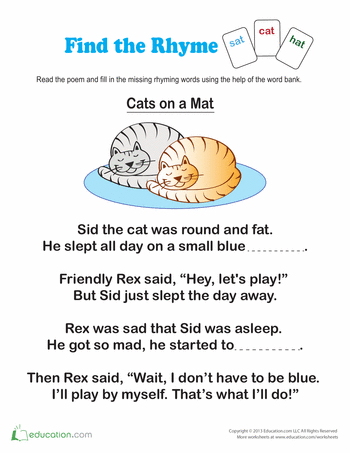 V.
V.
Chain rhyme
GOALS
- Teach children to answer with a word consonant with the one named.
- Learn to feel the rhythm, rhyme.
Teacher
Guys, let's play soon.
We will choose different words!
Say any words, okay?
But only such that it turns out ...
(smoothly).
What words similar in sound can be found for the word bird?
Children. Titmouse, small, singer.
Teacher. Speaking of bunny?
Children. Know-it-all, dunno, runaway, jumper, runaway.
Teacher. Speaking of cat?
Children. Spoon, bowl, basket, accordion, midge, potato, window, leg, earring, matryoshka.
Teacher. Speaking of mouse?
Children. A bump, a puff, a puff.
Teacher. Speaking of cancer?
Children. Poppy, tank, varnish, like.
Variant
The teacher throws the ball and pronounces a word, the one who catches the ball answers with a word consonant with the name.
Stove - sheep, river.
Birdie - titmouse.
Magpie - white-sided.
Bunny - runaway.
Find a pair
GOALS
- To teach children to match words that are similar and different in sound-rhythmic structure.
- Develop visual memory.
Teacher. Connect the words of the two columns so that you get a rhyme.
Edge Grass
Firewood Scallop
Herringbone Hut
Cockerel Needle
White-sided Fox
Bunny Cornflower
Magpie Sister
Titmouse Flower
Cowardly Bird
Variant
Picture words can be suggested. Children find a picture that is similar in sound-rhythmic structure.
Game with pictures
OBJECTIVES
- Teach children to choose a rhyme for the word - the name of the picture.
- Develop language flair.
First you need to prepare cards with pictures from which you can make rhyming words, for example, a picture of a pipe, another picture of a sponge. All pictures are located on a large table or on a carpet on the floor. Children distribute them in rhymes. For example, near the picture of a river there is a picture of a stove, a donkey is a goat, a cat is a spoon, a watering can is a snake, etc.
Children distribute them in rhymes. For example, near the picture of a river there is a picture of a stove, a donkey is a goat, a cat is a spoon, a watering can is a snake, etc.
Options
1. One child takes a picture, the other finds a picture with a rhyming word. Both say their words out loud. The group repeats.
2. Place pictures face down. Open one picture and say the corresponding word out loud. Whoever can name the rhyming word gets a picture and can open the next one.
3. One picture is opened. All children draw an object called a rhyming word. Here the solution is represented by a figure.
Say a word
OBJECTIVES
- Teach children to write their own rhyming lines.
Teacher. You already know how to pick up rhyming words. Today we will try to make suggestions.
Where were you, squirrel, walking?
Children
I collected nuts.
Teacher
The squirrel jumped fast,
Children
Lost all the nuts.
Teacher
Whom did you find, hedgehog?
Children
I brought a squirrel to you.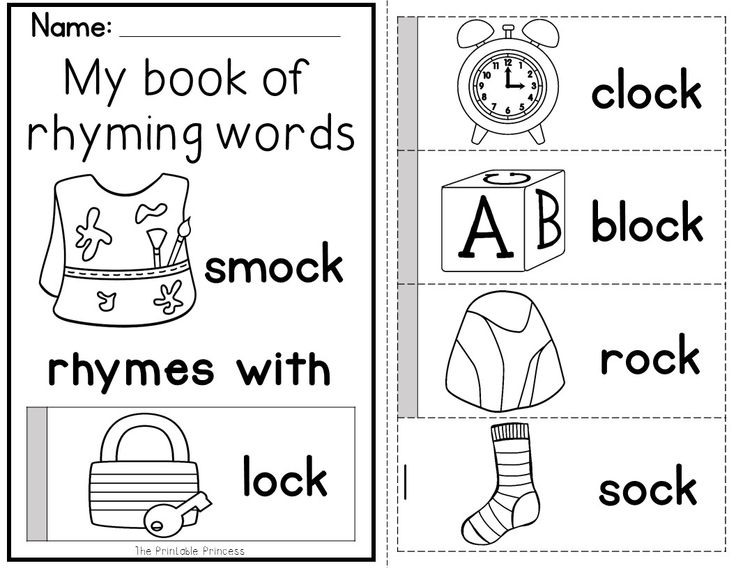
Teacher
Yesterday we played in the forest,
Children
We saw a huge mushroom.
Teacher
A fungus stood aside,
Children
The hedgehog couldn't find it.
Teacher
Like a little hedgehog
Children
Shoes have become torn.
Teacher
And our squirrel
Children
Clean plates.
We are poets
OBJECTIVES
- To teach children to compose quatrains that contain a whole story.
Teacher
The teacher says to Paraska:
“What fairy tales have you read?”
Paraska thinks, "Oh,
I haven't read any!"
And behind someone whispers:
"Turnip!"
Paraska yelled: "Cap!"
Today we will also come up with funny poems. What or who do you want to write about?
Children answer.
Let's talk about the cat, let's support Serezha. I will write down what you tell me, and then I will read out what we have done.
Children come up with unexpected situations with a cat by rhyming words.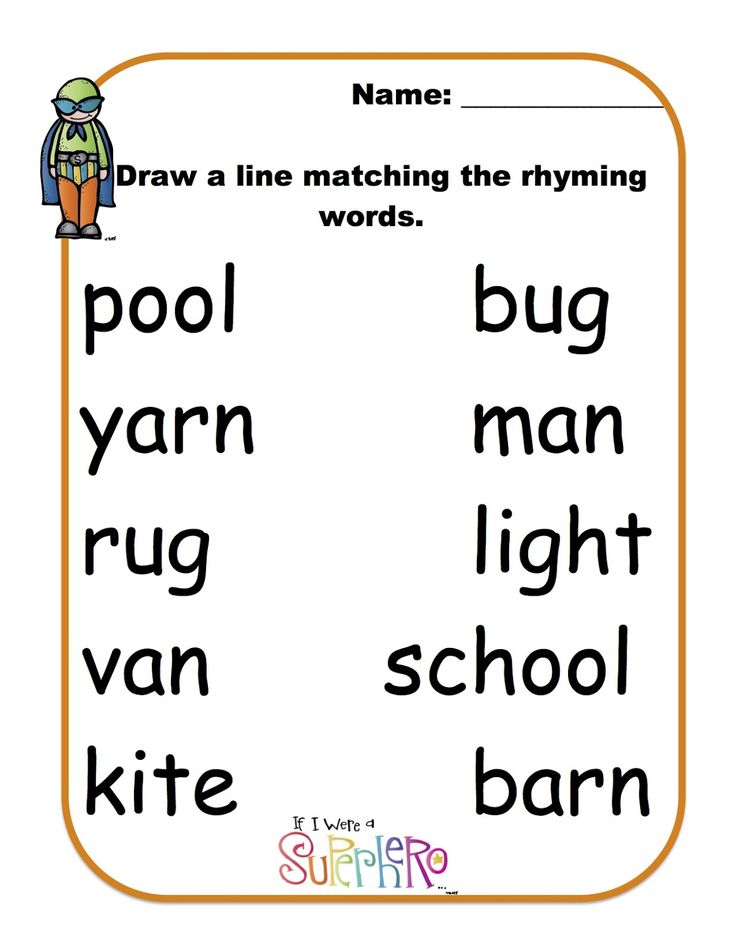
Children. The cat sat on the window. The cat saw a midge. The cat took a basket and went for potatoes. The cat sat on the window and dangled its legs. The cat put all the spoons in a basket.
Council. The most important thing is not to leave the words of children without attention. And for each word come up with a rhyme.
Stories to rhyme
OBJECTIVES
• Teach children to write simple rhymes.
• Learn to distinguish between the sound and semantic sides of speech.
Teacher. Do you already know what rhyme is in poetry?
For example, the rhyme for the word flower can be a leaf, and for the word porridge - curdled milk. Bear cub Misha wants to teach you how to do it. They drew funny pictures with Druzhok and came up with inscriptions in verse for them. And the last word in the second line of each rhyme was not completed. Find the right rhyme yourself. It's not difficult at all.
A friend is behind the fence and looks timidly,
How cleverly a friend is wielding .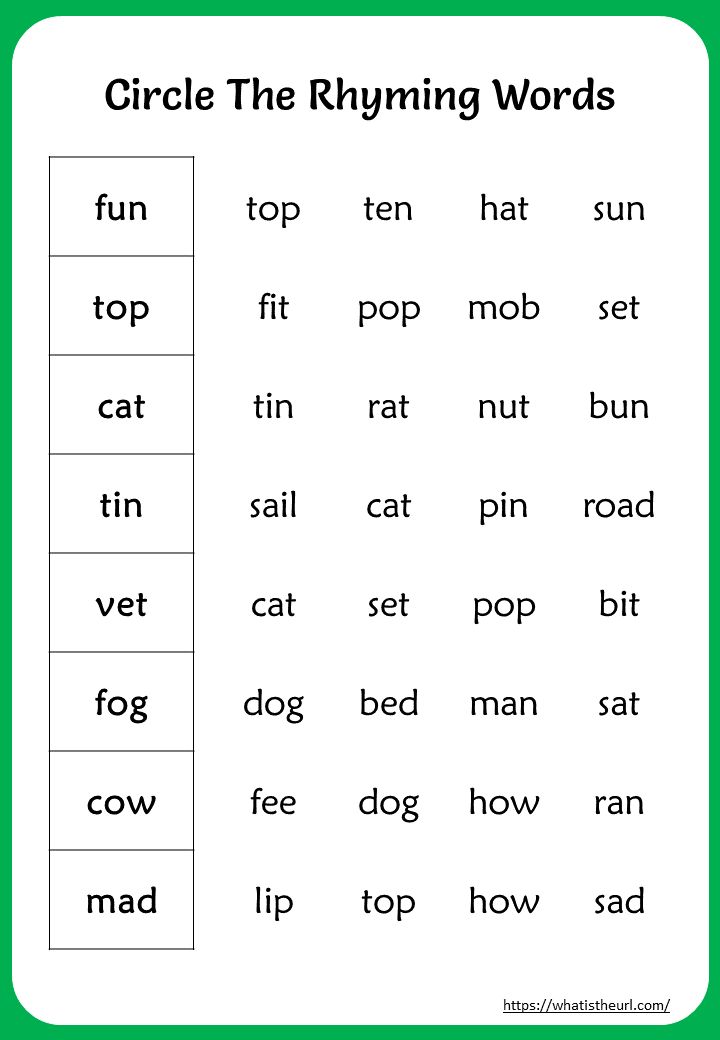 .. (with chalk).
.. (with chalk).
Druzhka is disturbed by one thought
Will they see ... (elephant).
When Mishka gets tired of playing
Let him stand at the gate ...
(mouse).
All morning they searched and searched until
Found a new bowl...
(Druzhka).
Help Dunno compose poetry
OBJECTIVES
• To teach children to distinguish between sound and semantic aspects of speech.
The teacher brings N. Nosov's book "Adventure Dunno".
Teacher. Guys, did you recognize this book? Today I will tell you how Dunno wrote poetry.
... After Dunno did not turn into an artist, he decided to become a poet and compose poetry ... Dunno came to the poet Tsvetik and said:
- Listen, Tsvetik, teach me to compose poetry. I also want to be a poet.
- Do you know what a rhyme is?
- Rhyme? No, I do not know.
- Rhyme is when two words end in the same way, - explained Tsvetik. - For example: a duck is a joke, a shortbread is a walrus. Understood?
- Understood.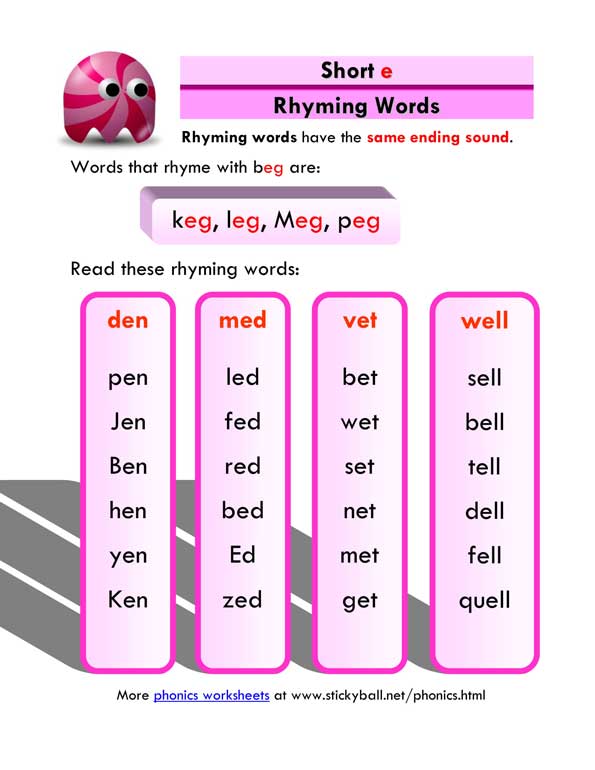
- Well, say a rhyme for the word "stick".
- Herring, - Dunno answered.
Guys, help Dunno.
Game in progress.
All day long Dunno wrote poetry and finally came up with:
Znayka went for a walk to the river,
Jumped over a sheep.
Hurry was hungry -
Swallowed a cold iron.
Under Avoska's pillow
There is a sweet cheesecake.
Find rhymes
OBJECTIVES
- Teach children to identify rhyming words from a text by comparing them.
Teacher. Today I will read B. Shergin's story "Rhymes" to you, and your task is to hear rhyming words. Do you agree?
Shish went to the city on his business. It was summer, it was hot.
An uncle rides a horse ahead. Shish and asked him to give a lift. He sat down next to his uncle. But Shish cannot sit silently. He is only silent when he sleeps. He says:
- Uncle, let's play rhymes.
- What is it - rhymes?
- And let's say it so that it was smooth.
- Come on.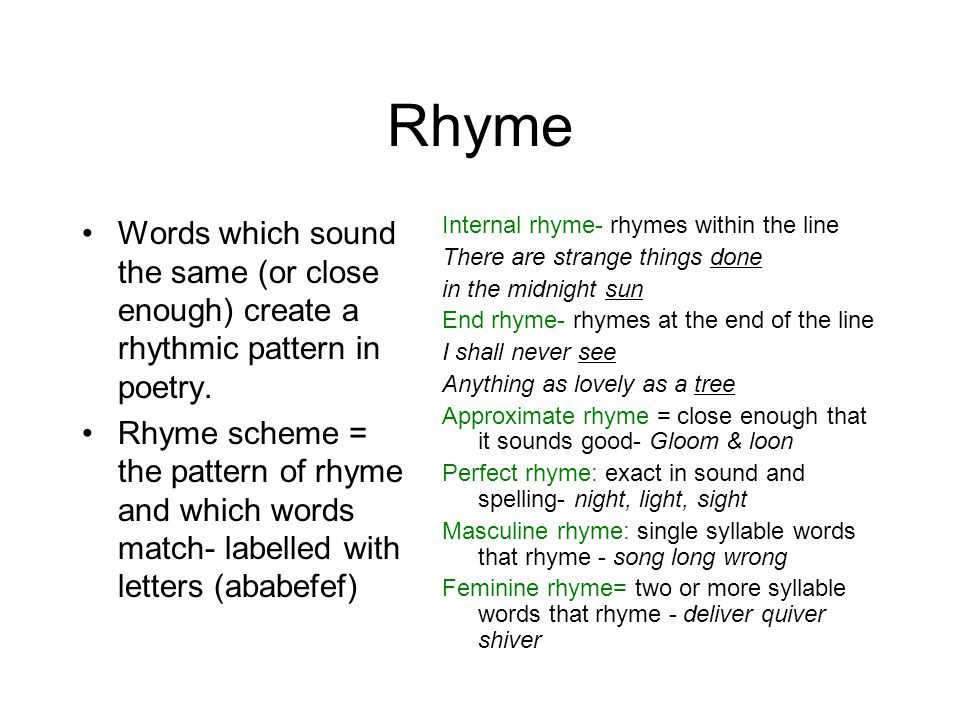
- Here, uncle, what was your father's name?
- My dad's name was Kuzma.
Shish says:
I'll take your Kuzma
by the beard!
- Why are you going to take my dad by the beard?
Shish says:
- This, uncle, is for rhyme. Tell me what your grandfather's name was.
- My grandfather's name was Ivan.
Shish says:
Your grandfather Ivan
Put the cat in his pocket.
The cat is crying and sobbing,
Your grandfather is scolding.
The uncle got excited:
- Why would my grandfather put a cat in his pocket? Why are you picking up such rubbish?
- This is an uncle, for rhyme.
- I'll tell you a rhyme, what's your name?
- My name is… Fedya.
Uncle says:
If you are Fedya,
Then catch a bear in the forest.
Ride a bear,
Get off my horse!
- Uncle, I was joking. My name is not Fedya, but Stepan.
Uncle says:
If you are Stepan,
Get on the eroplane,
On the eroplane and fly,
Get off my horse!
- Uncle, I was joking.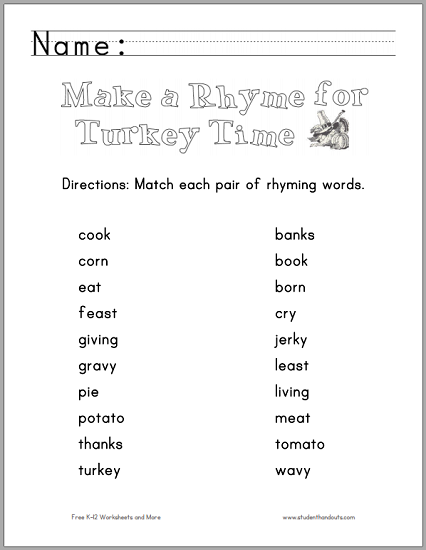 My name is not Stepan, but… Silantiy.
My name is not Stepan, but… Silantiy.
Uncle says:
If you're Silantius,
Then get off my horse.
- What are you, uncle, there is no such word - “tears”.
- Although not, get off anyway!
Shisha had to get off the cart. It serves him right. If a kind person carries you on a horse, you sit silently, and do not invent all sorts of trifles.
Children find rhyming words in the text and name them.
GDZ, Russian language, Ladyzhenskaya 5th grade. Exercise No. 317 What rhyming words suggest the correct pronunciation .. - Rambler / class
GDZ, Russian language, Ladyzhenskaya 5th grade. Exercise number 317 What rhyming words suggest the correct pronunciation .. - Rambler / classInteresting questions
School
Tell me how to deal with the rude attitude of classmates towards my child?
News
Could you tell us how much you spent on preparing your child for the school year?
School
Explain, is it true that parents will now be informed about the decline in school performance?
School
When is the main period of the USE scheduled for 2018?
News
Will the system of checking and organizing final essays be somehow improved?
Universities
Can you tell me why the admission to the Moscow Institute of Television and Radio Broadcasting "Ostankino" was closed?
What rhyming words suggest the correct pronunciation of the underlined letters?
1.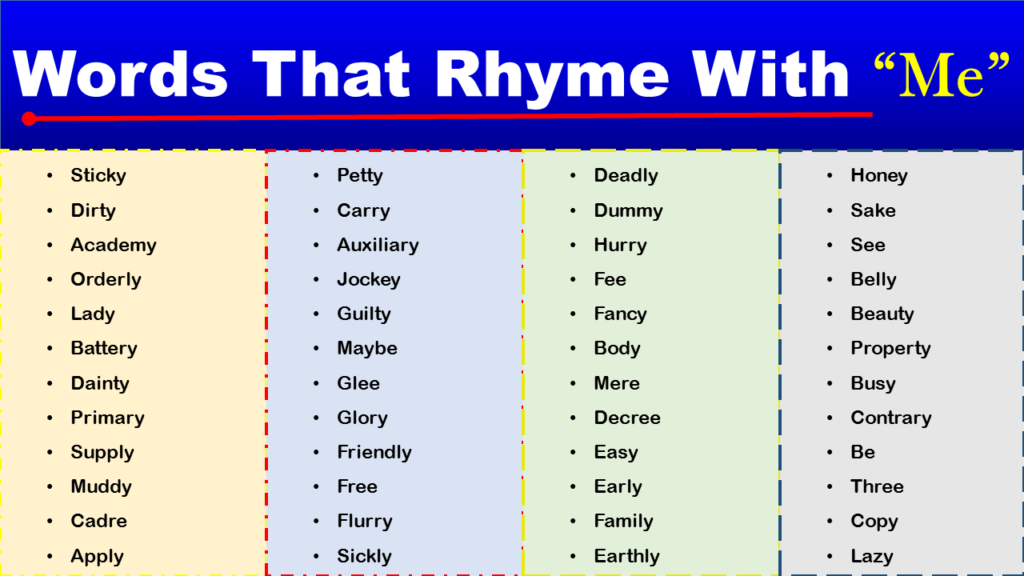 Everyone's work is needed equally.
Everyone's work is needed equally.
2. Present the documents and you will receive the tools.
3. The engine is buzzing, and the driver is happy.
Help mi (
answers
everyone’s work is needed equally
present documents (m.e.) and you will receive tools (m.e.)
The motor is buzzing and the driver (f , o)
Your answer
can be entered 4000 Coopimols
Send
Badge
Press the Conditions of the User Agreement
Similar Topics
Foreign Languages
USE
Essays
Poetry
similar questions 5
Is it planned to introduce the third compulsory exam in the USE in 2018?
Have you already read on the Internet about the introduction of the third mandatory exam in the Unified State Examination? Will it or not, I don't understand? (More.